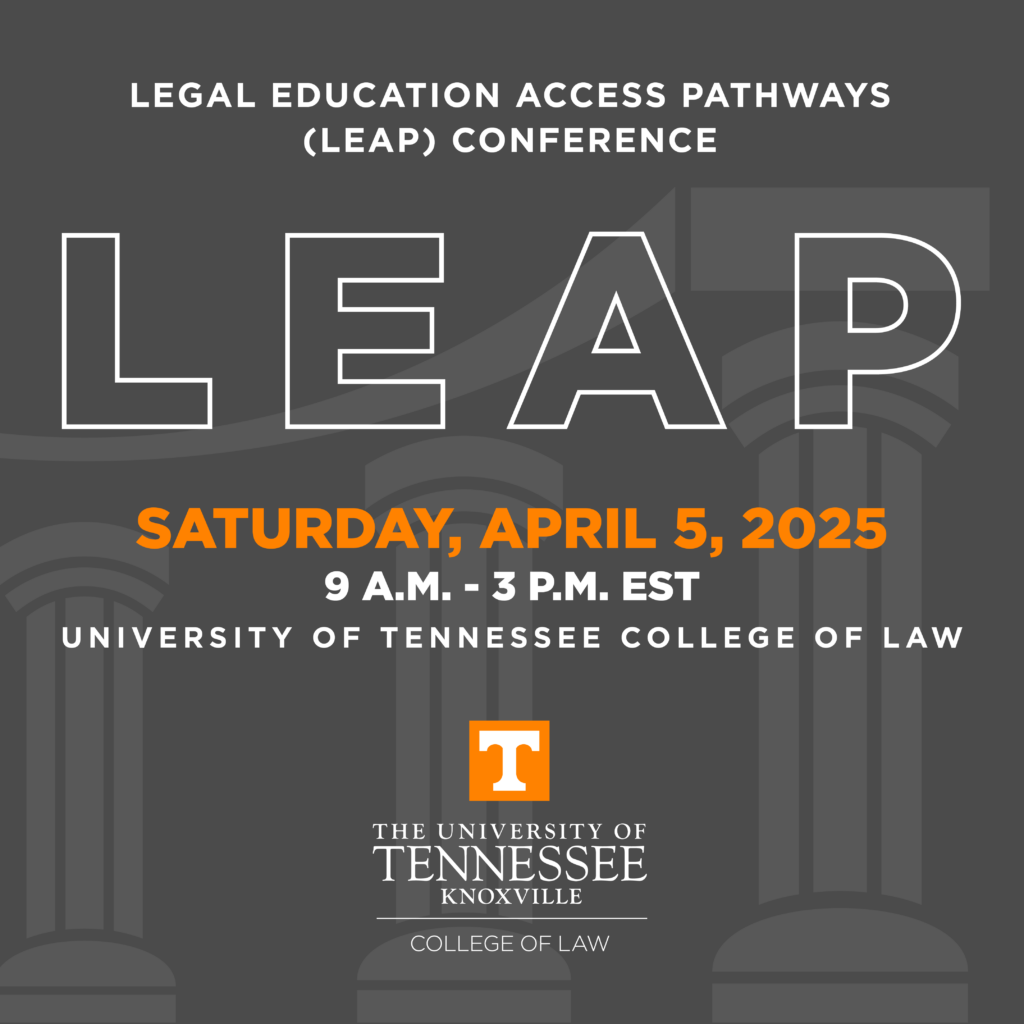Diversity, Inclusion &
Community Engagement
at Winston Law
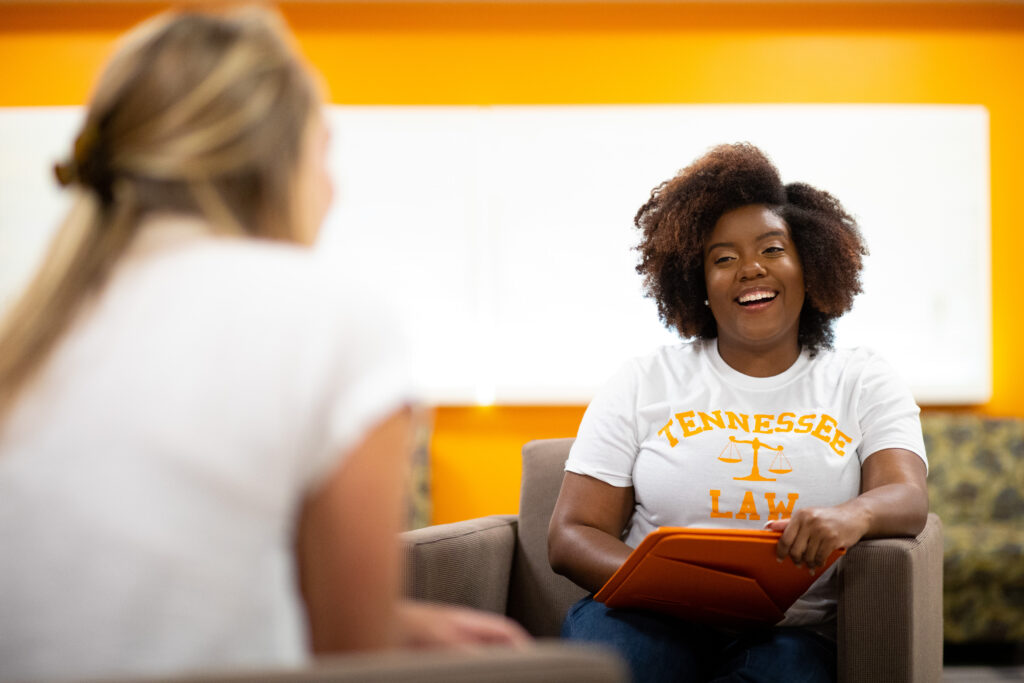
Winston College of Law fully embraces the goals of the Statement of Aspirations approved by the University of Tennessee Board of Trustees.
Consistent with that, we at the Winston Law are committed to promoting and cultivating diversity, which is expressed in myriad forms, including race, color, ethnicity, religion, national origin, gender, gender identity or expression, sexual orientation, age, disability, military status, socio-economic status and viewpoint.
Our immediate aim is to foster a more inclusive learning and working environment for our entire community – one that succeeds and thrives because of its diversity.
Our broader aim is to learn, teach and practice the principles of equity and justice to ensure that all people have the opportunity to grow, contribute and achieve their aspirations. We commit to pursuing deliberate efforts to ensure that our college welcomes differences and is a place where different perspectives are heard and every individual feels a sense of belonging.
To ensure equity, we also commit to challenge and respond to bias, harassment, and discrimination, and to provide equal opportunities for our students, faculty and staff.

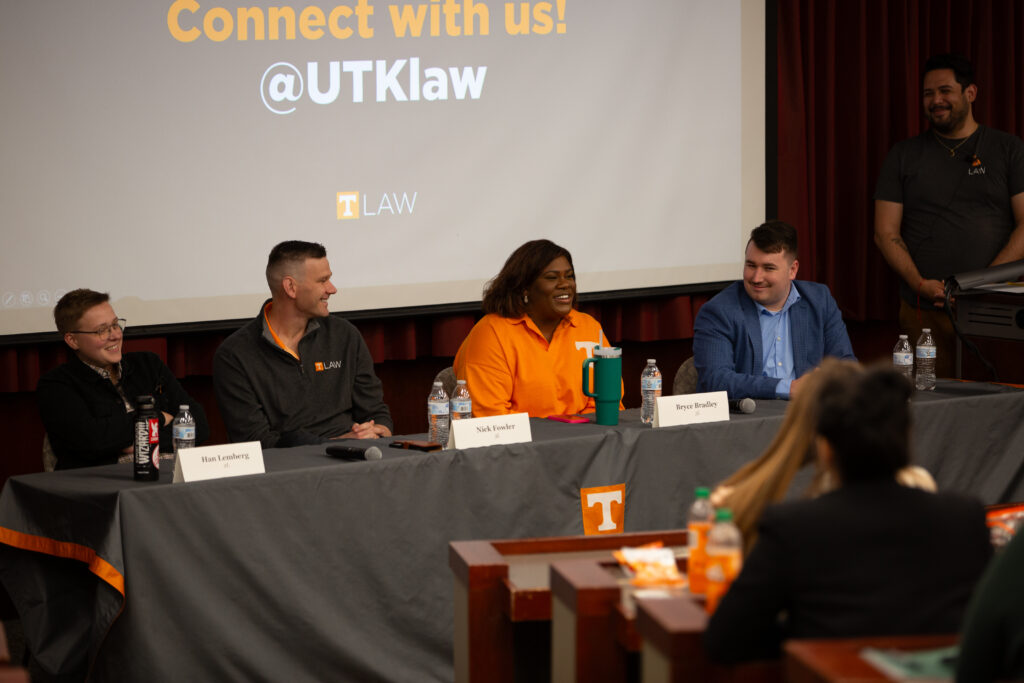
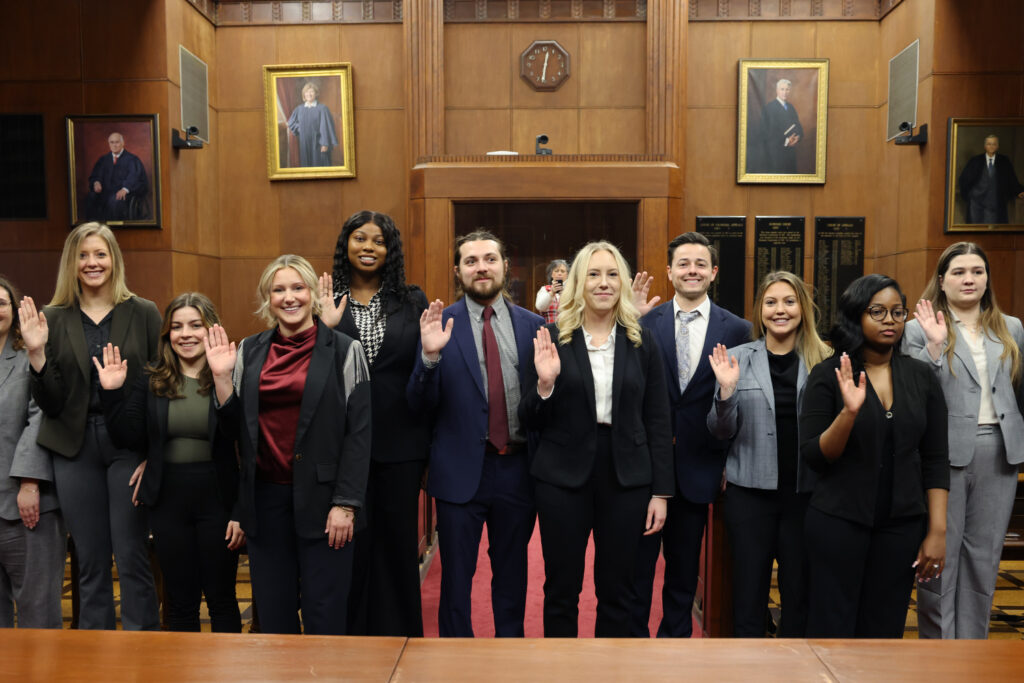
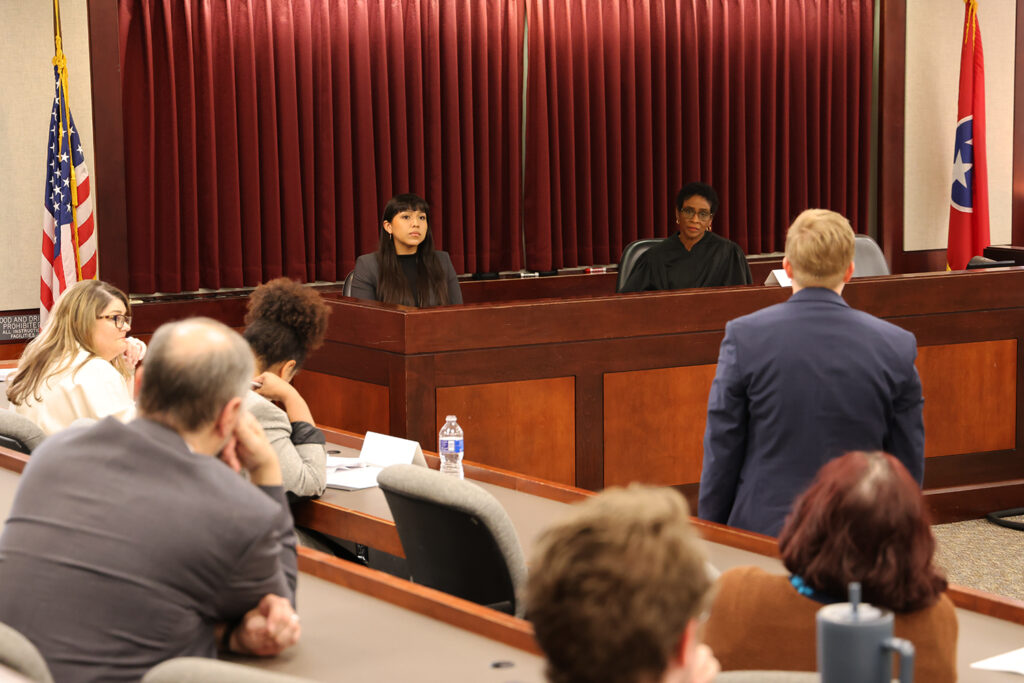
Community Engagement
Faculty, staff, and students at the Winston Law are actively involved in community engagement efforts. As the law school for the state’s flagship institution, we are deeply committed to the land grant mission and to its call to support and collaborate with our community.
Pro Bono Programs
Students engage in pro bono work, providing free legal assistance to underserved communities.
TN Supreme Court recognizes students for pro bono service

Legal Clinic
Winston Law’s Legal Clinic works extensively with our neighboring communities to offer a variety of legal services.
Students in the Expungement Mini-Clinic provide critical legal assistance to underserved citizens in having criminal offenses expunged, thereby facilitating their ability to exercise important rights.
Students in the Transactional Law Legal Clinic interact with local, state and federal agencies on behalf of underrepresented clients to draft contracts and governance documents; conduct regulatory research and provide compliance advice; and provide legal presentations to the community.
UT Legal Clinic Honored for Extraordinary Community Service
Research and Advocacy to Support Community Priorities
The law school’s faculty, staff, and students work with individuals across campus and with partners in the region to support communities throughout Tennessee and beyond.
Student Organizations and Engagement
Winston Law offers a wide range of opportunities through its programming and student organizations, enabling students to engage with the community, connect with practicing lawyers and potential employers, and build lasting relationships with peers with a variety of perspectives. These opportunities are reflected in numerous initiatives, a few of which are highlighted below.
Meet a few of our active student organizations
The Federalist Society is a non-partisan group of conservatives and libertarians interested in the current state of the law and legal system. The society’s principles are that “the state exists to preserve freedom, that the separation of governmental powers is central to our Constitution, and that it is emphatically the province and duty of the judiciary to say what the law is, not what it should be.” The society seeks to promote an awareness of these principles and to further their application through its activities. The group regularly hosts speaker events, bringing politicians and thought leaders in the legal profession to share their knowledge with the law community.
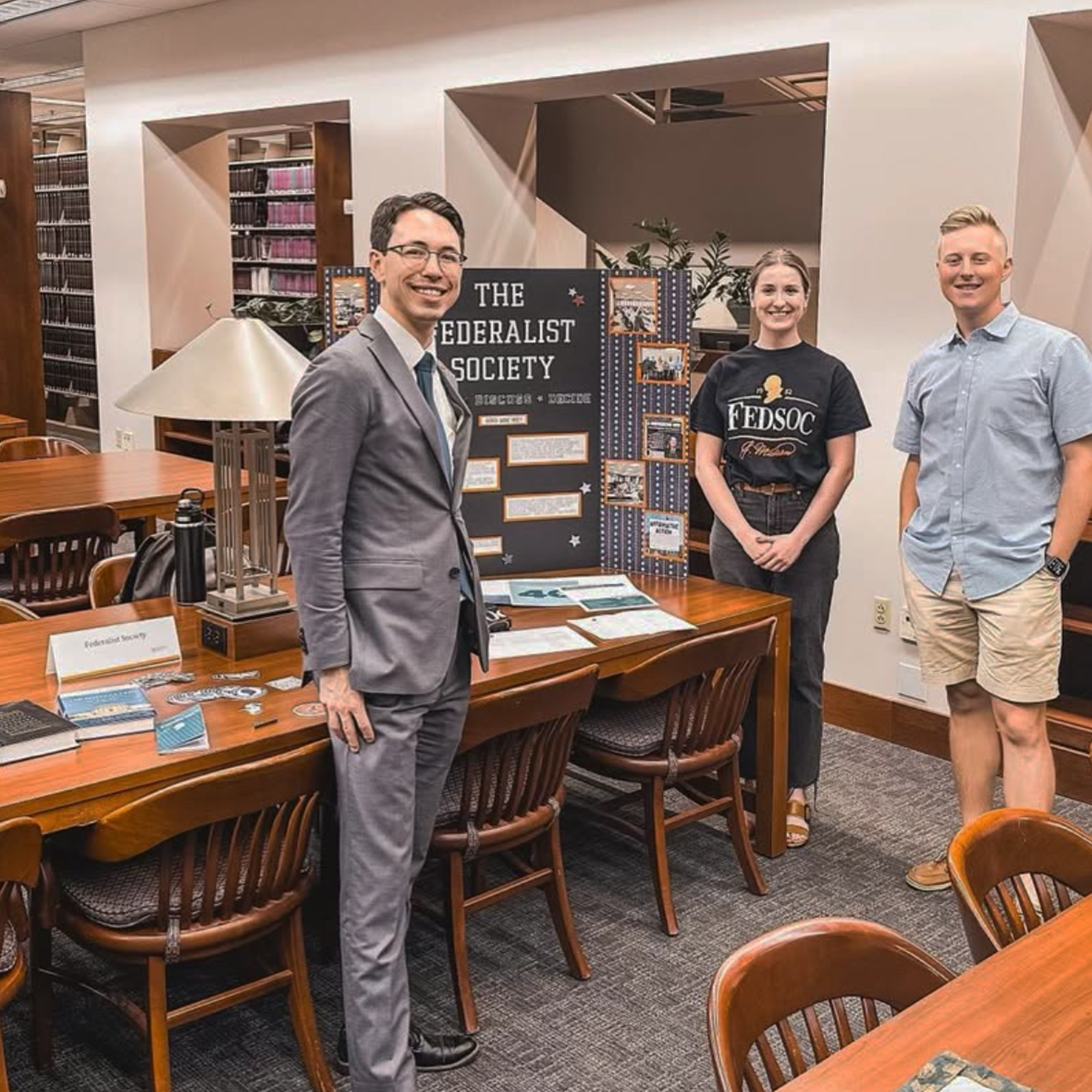
A chapter of the National Black Law Students Association, BLSA offers a dynamic range of programs and events throughout the academic year including panels on mentorship, networking sessions, and professional development workshops, and engaging speaker events. The group also co-hosts the annual Julian Blackshear, Jr. Scholarship Gala, benefitting the Julian Blackshear, Jr. Scholarship. BLSA features competitive Mock Trial and Moot Court teams for 2L and 3L students, with a special 1L Fellow observation program.
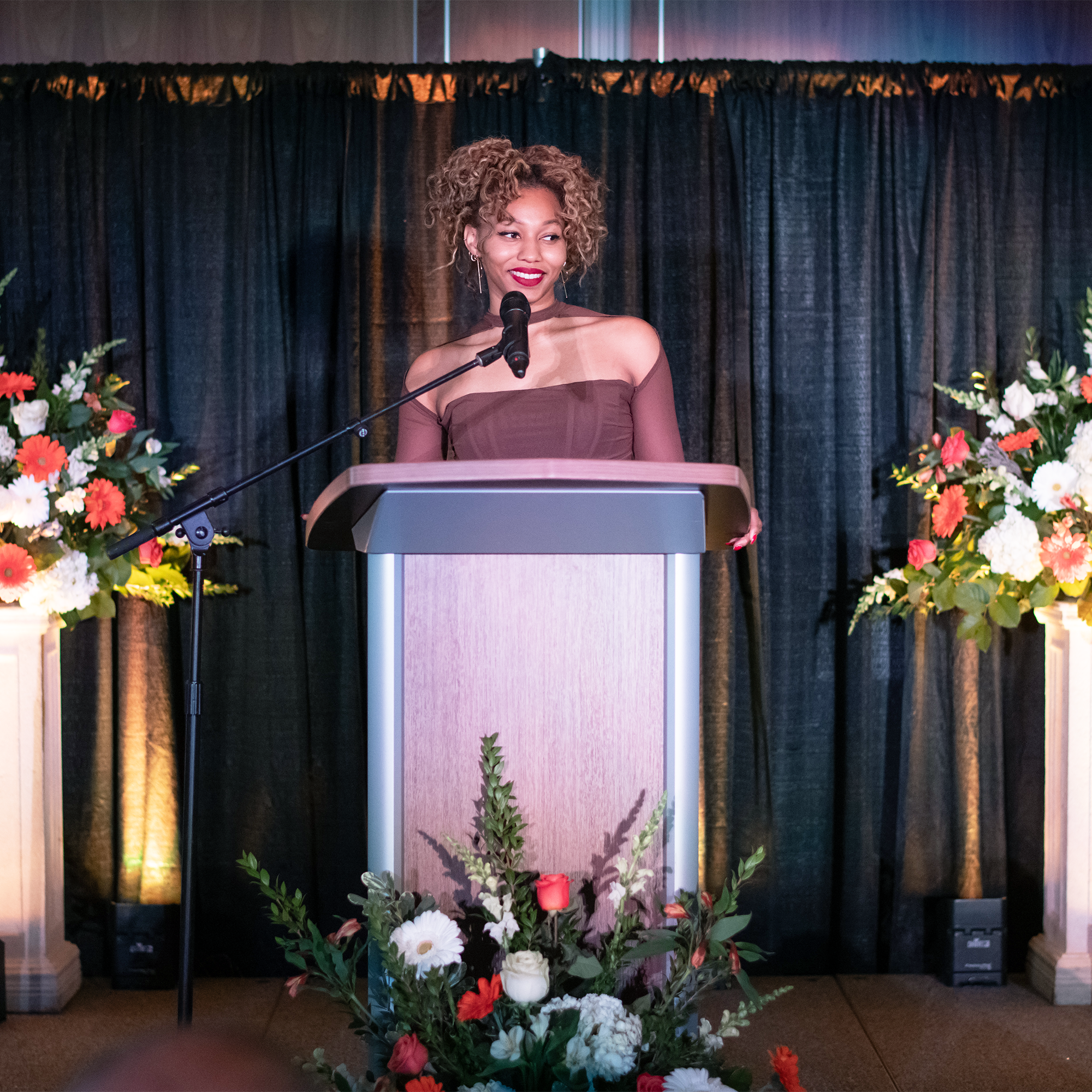
Vols for Veterans was founded by students committed to aiding veterans in the Knoxville community. The organization introduces law students to career opportunities in military service through JAG careers, assists veterans through pro bono work, and annually awards the General Clifton Cates Leadership Scholarship to two law student veterans or dependents of veterans. In 2024, past and current Vols for Vets members gathered in front of College of Law as 1L Dylan O’Brien was promoted to the rank of Captain in the U.S. Marine Corps in a ceremony conducted by Lt. Col. Chris Davis (’19), a founder of Vols for Vets.
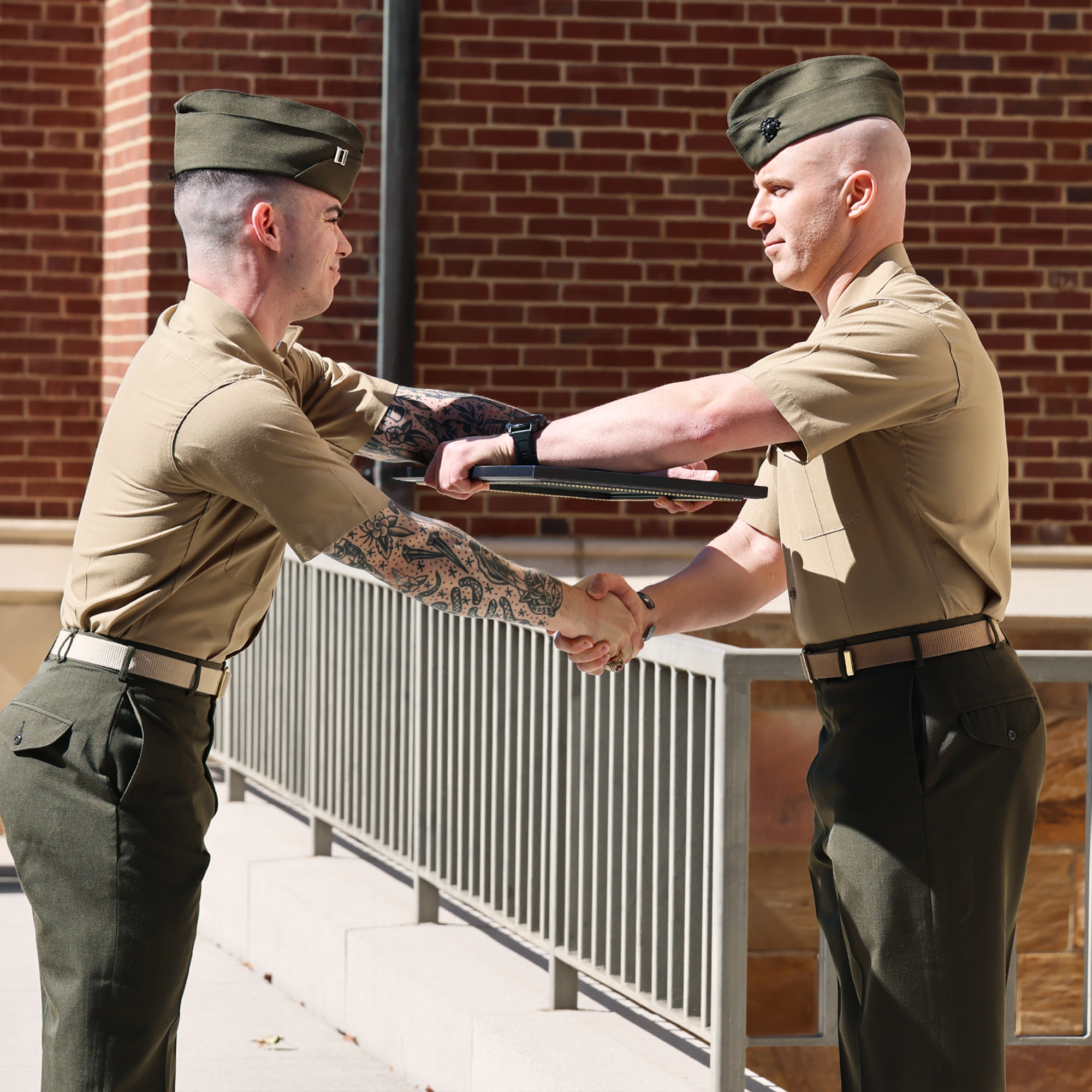
Law Women strives to raise awareness of issues related to women’s participation in the judicial system, promote career opportunities, act as a forum for networking with attorneys and other legal professionals, and coordinate activities within the university community. Among the groups’ many community building initiatives, is its annual chili cookoff, a tasty scholarship fundraiser.
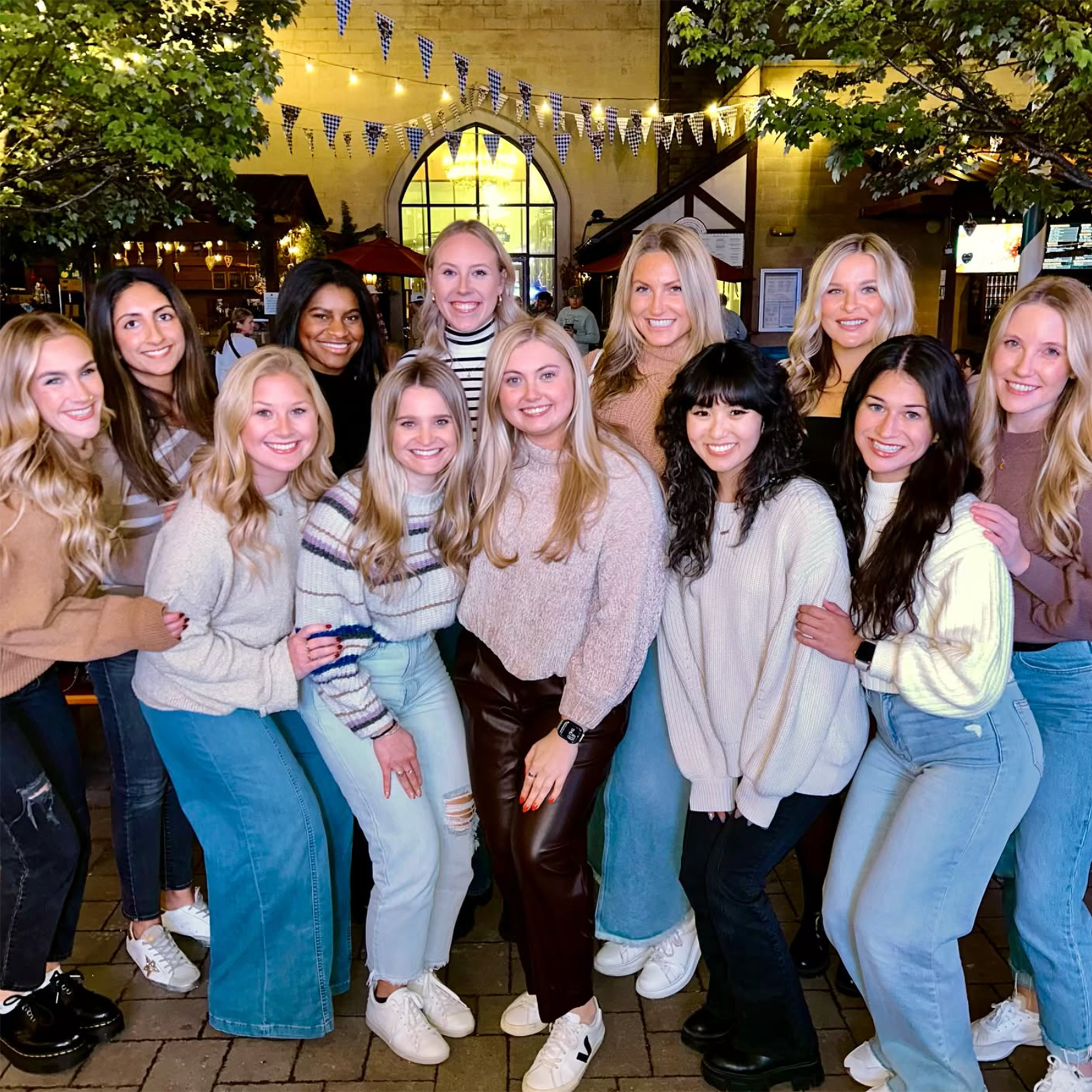
The Federalist Society is a non-partisan group of conservatives and libertarians interested in the current state of the law and legal system. The society’s principles are that “the state exists to preserve freedom, that the separation of governmental powers is central to our Constitution, and that it is emphatically the province and duty of the judiciary to say what the law is, not what it should be.” The society seeks to promote an awareness of these principles and to further their application through its activities. The group regularly hosts speaker events, bringing politicians and thought leaders in the legal profession to share their knowledge with the law community.

A chapter of the National Black Law Students Association, BLSA offers a dynamic range of programs and events throughout the academic year including panels on mentorship, networking sessions, and professional development workshops, and engaging speaker events. The group also co-hosts the annual Julian Blackshear, Jr. Scholarship Gala, benefitting the Julian Blackshear, Jr. Scholarship. BLSA features competitive Mock Trial and Moot Court teams for 2L and 3L students, with a special 1L Fellow observation program.

Learn more about all of the active Winston Law Student Organizations
The annual Julian Blackshear Jr. Scholarship Gala celebrates students, alumni and friends who have positively impacted the University of Tennessee College of Law through their commitment to diversity and inclusion.
The event is organized annually by the Dean’s Office in partnership with the Black Law Students Association (BLSA).
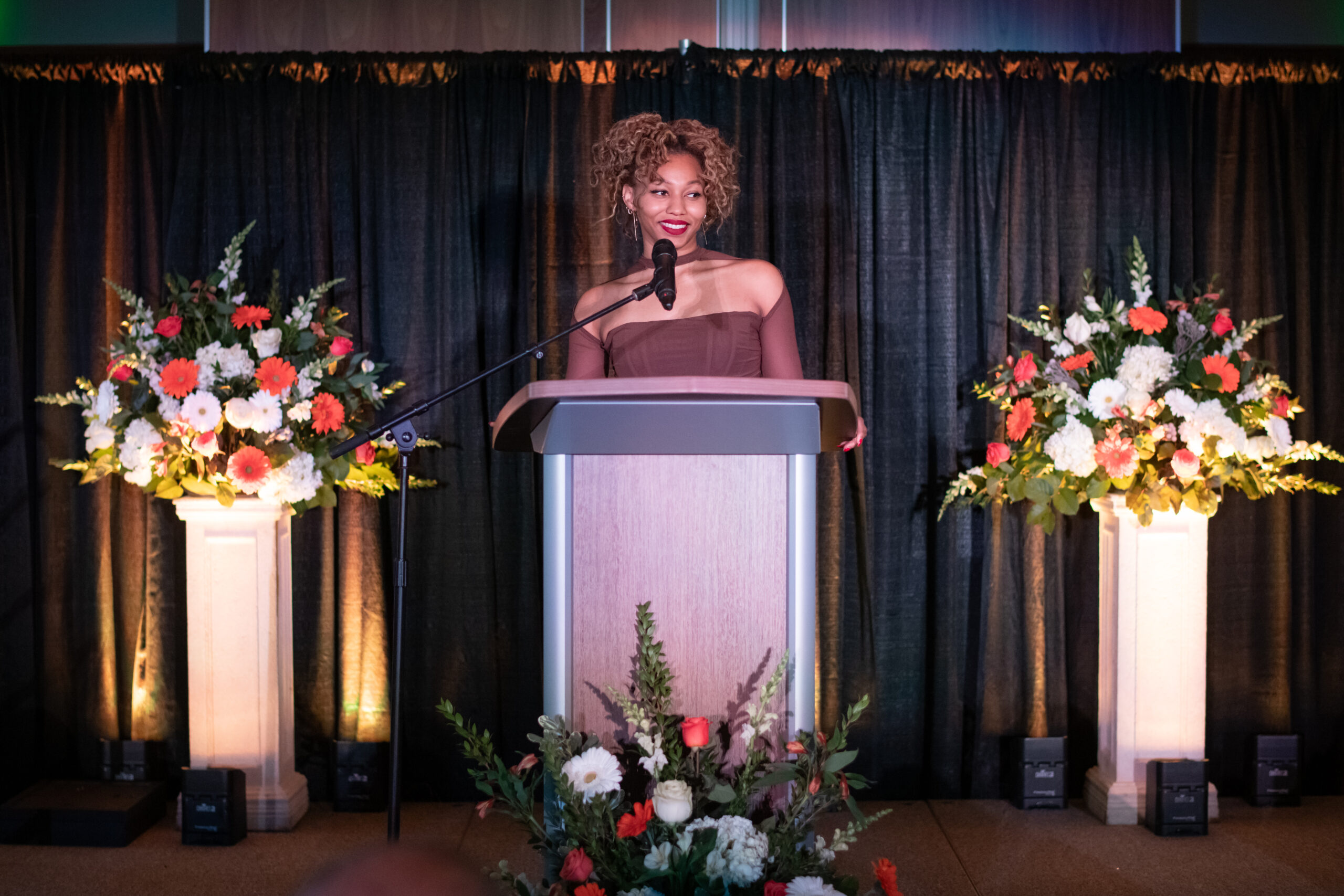
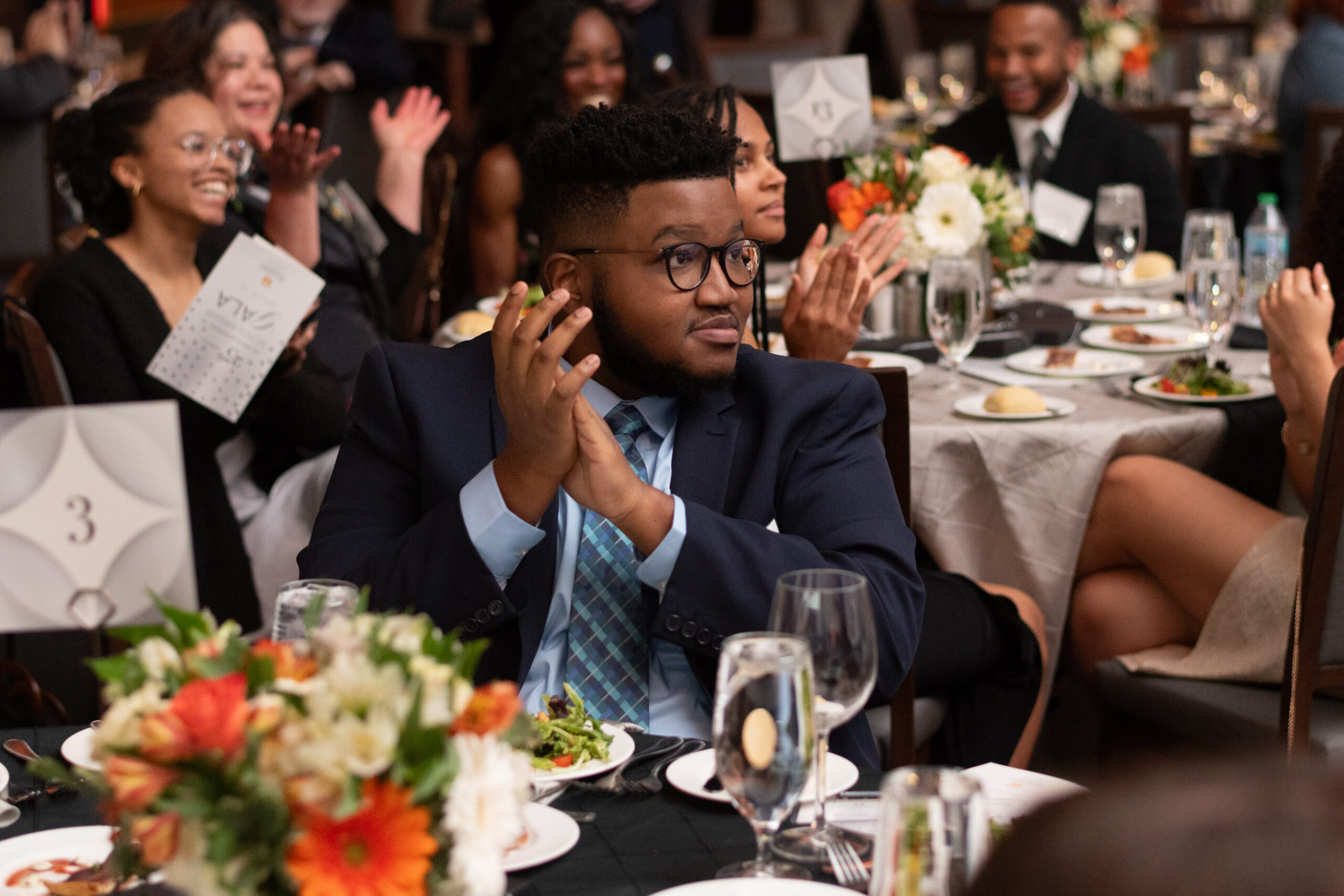
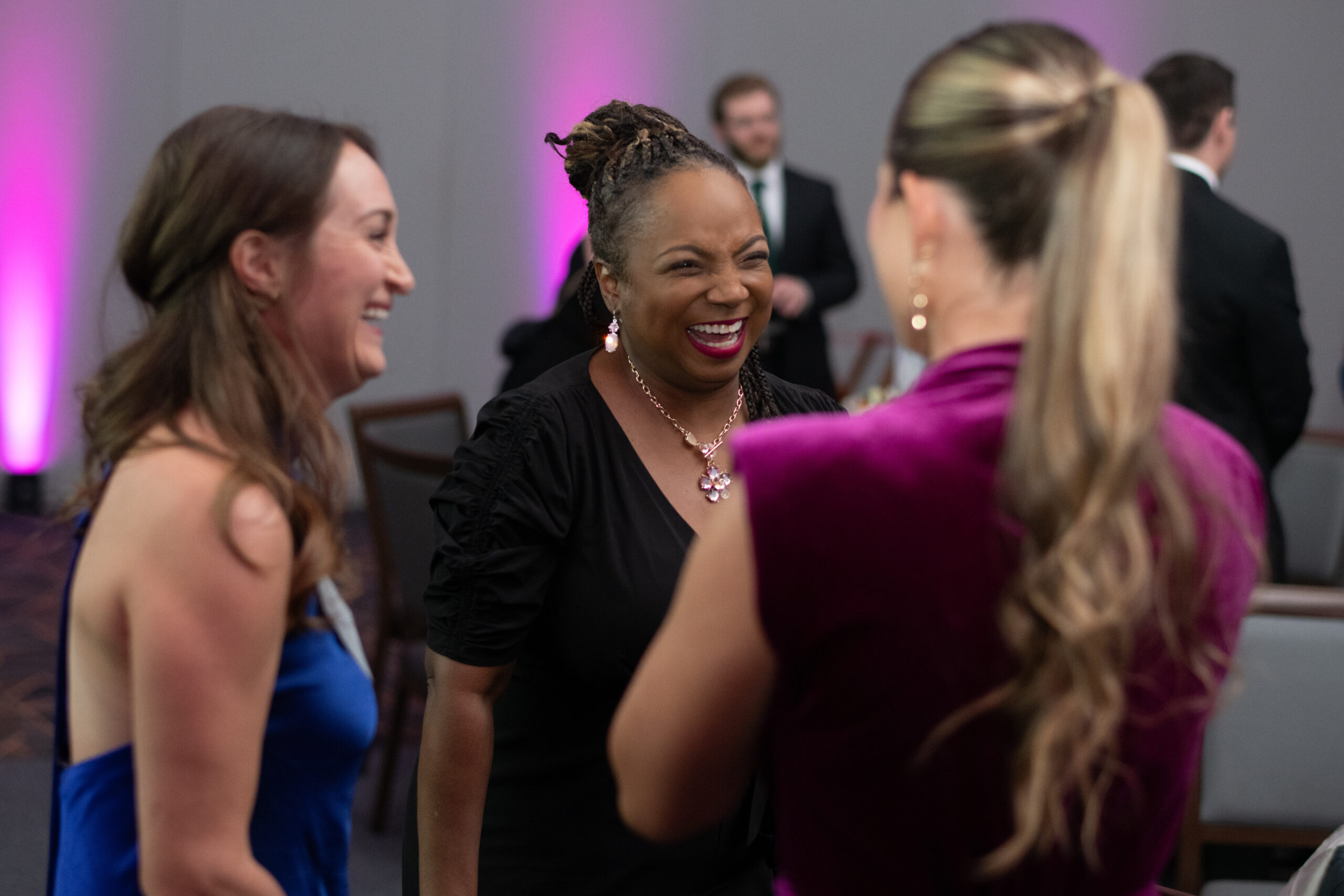
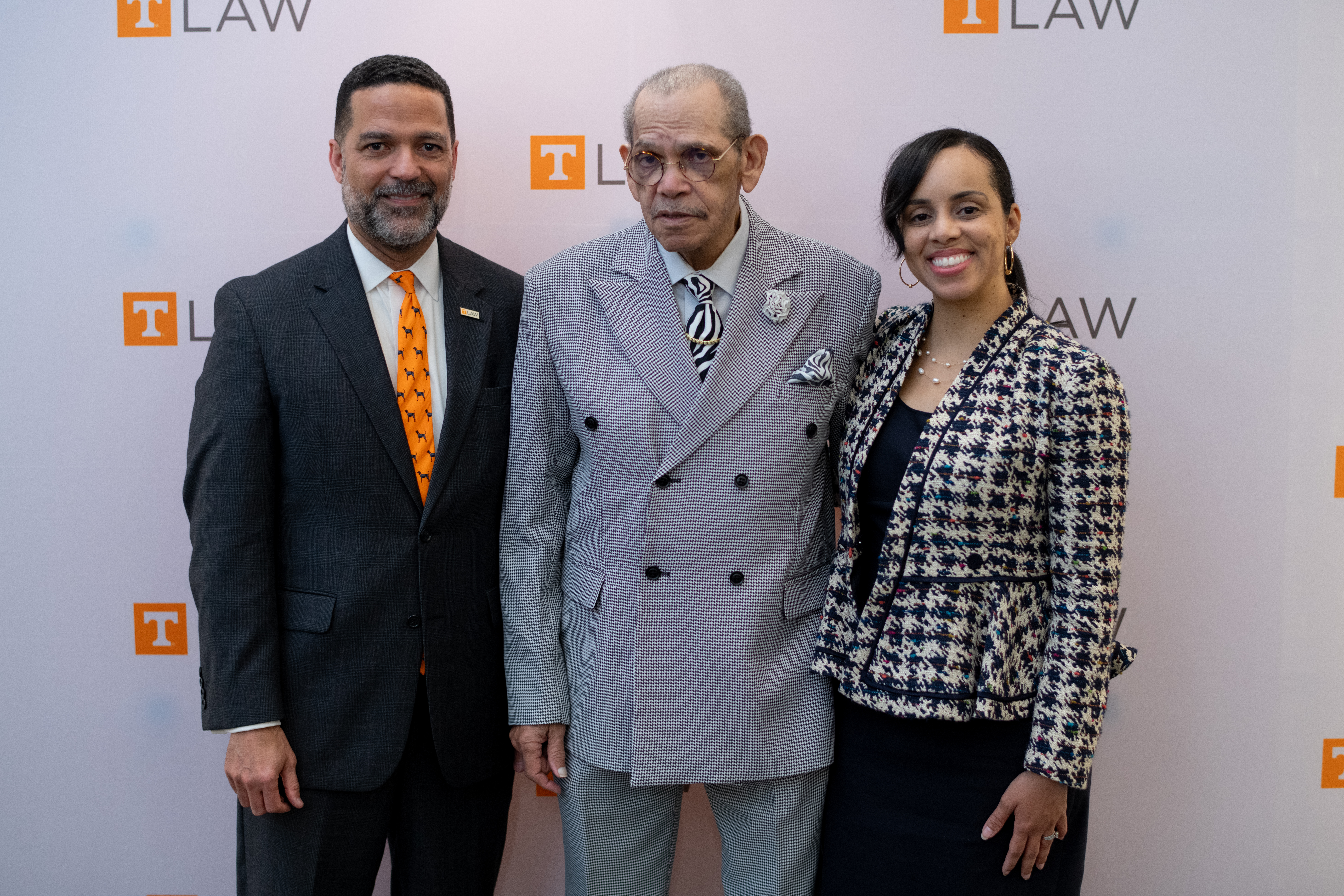
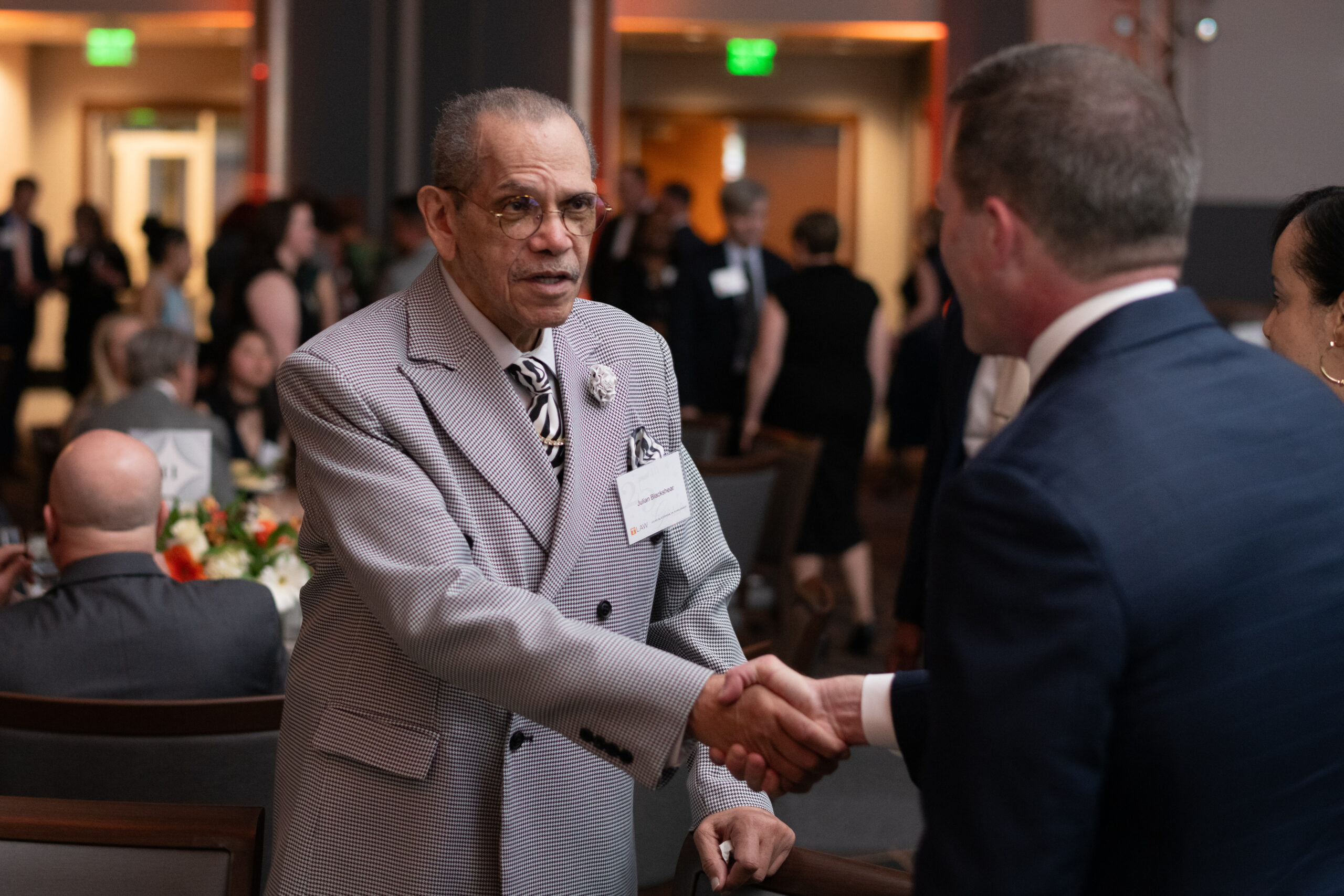
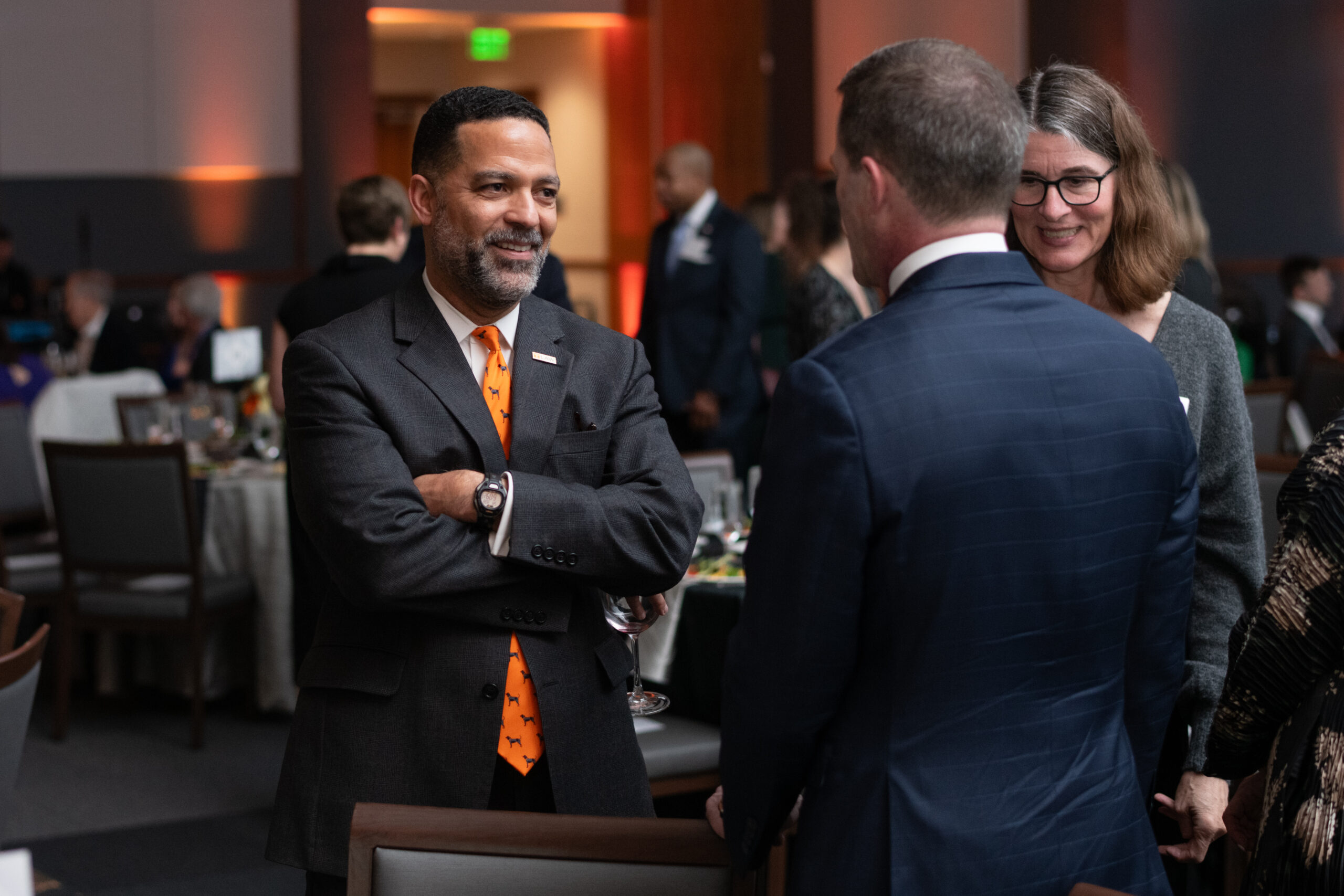
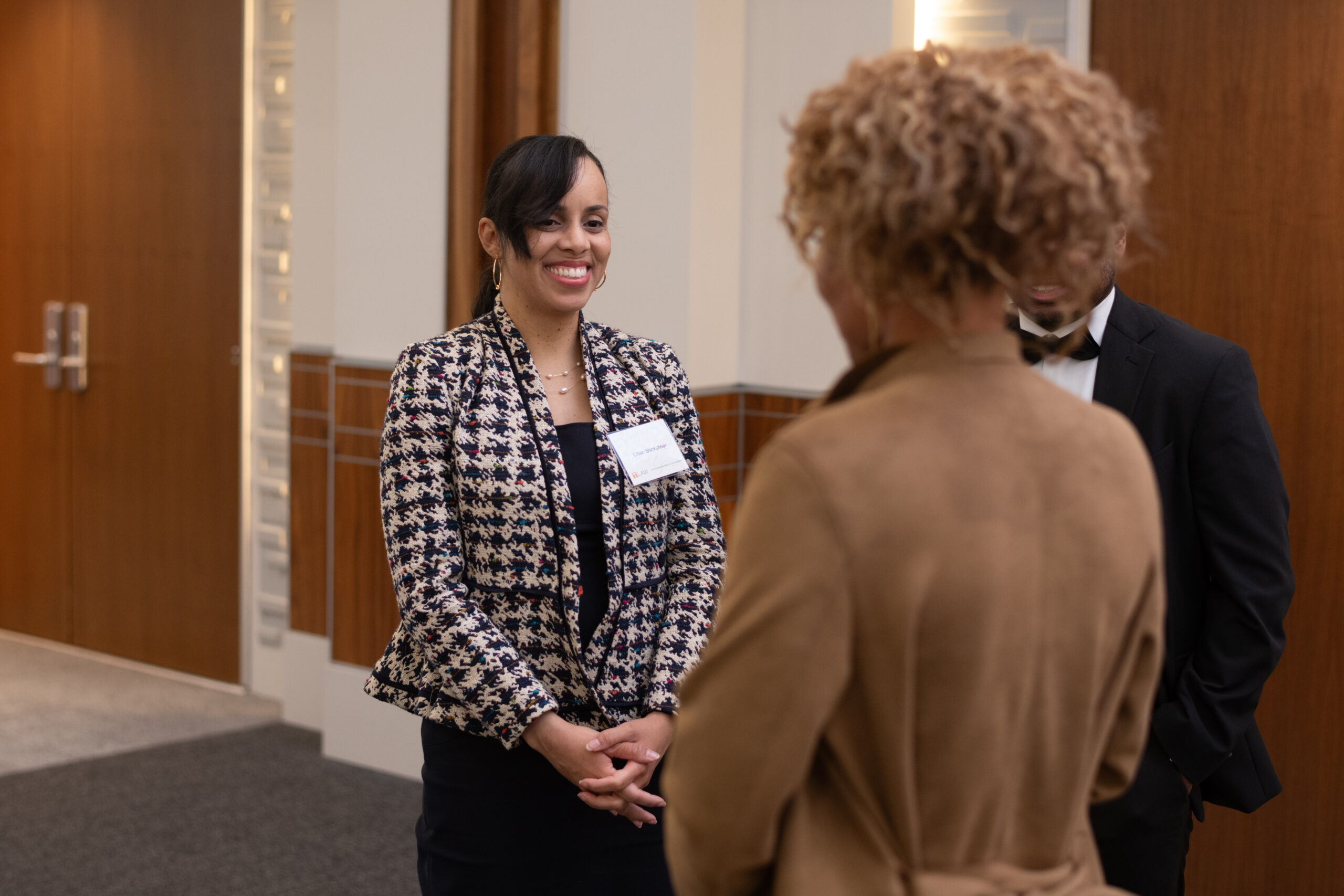
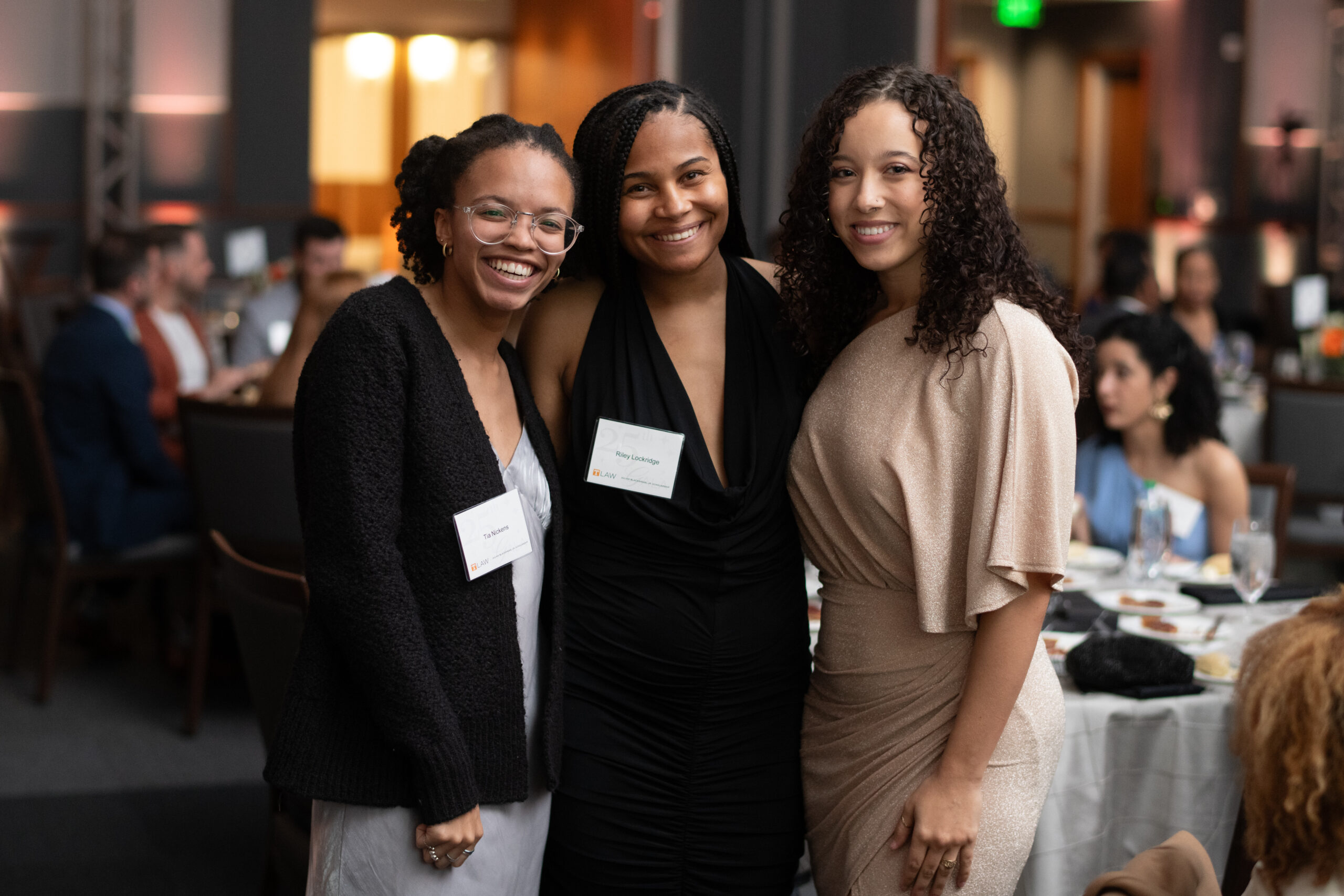
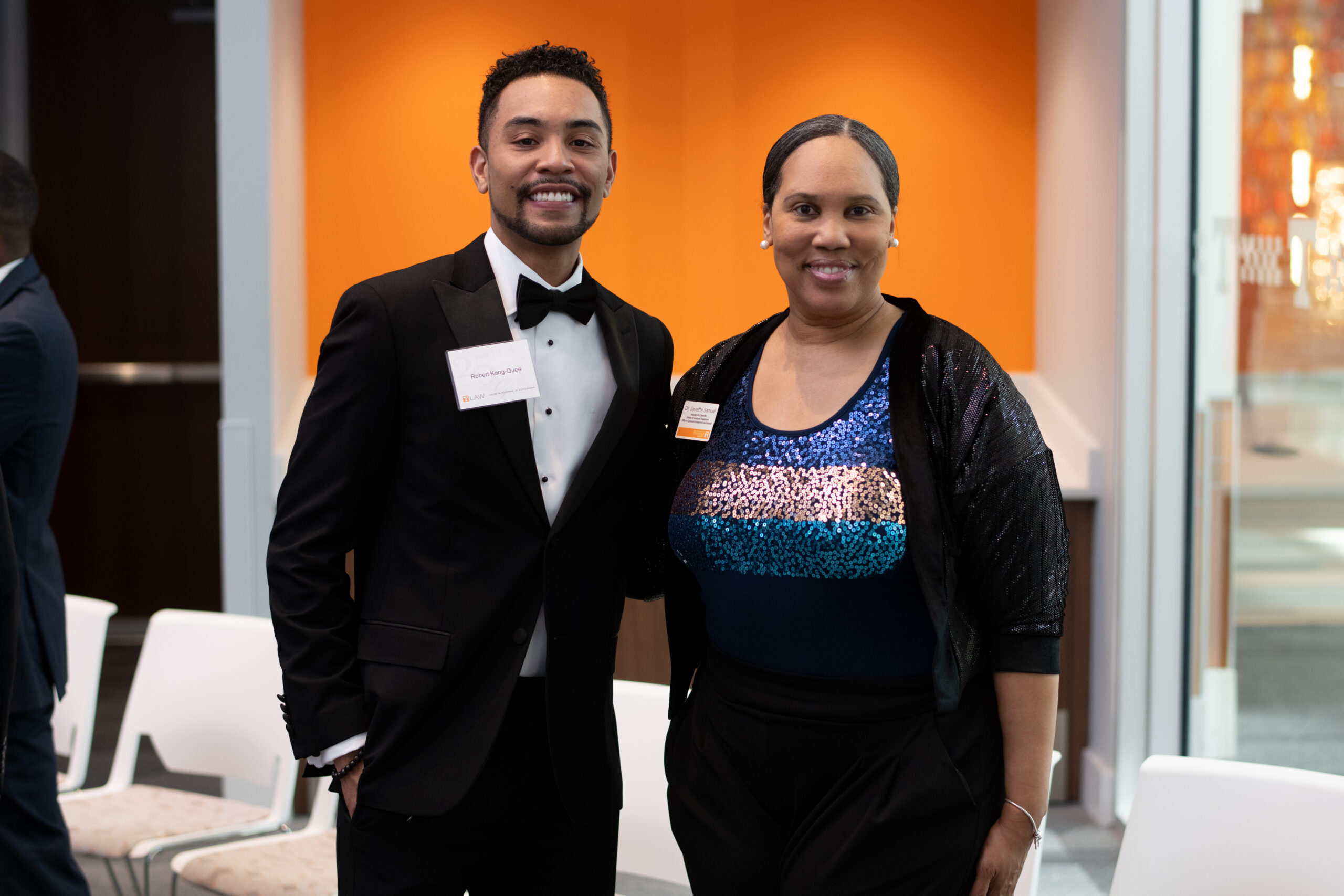








Hosted by the Black Law Students Association, Dr. Theotis Robinson visited Winston Law to share his trailblazing history as one of the first African American students admitted to UT.
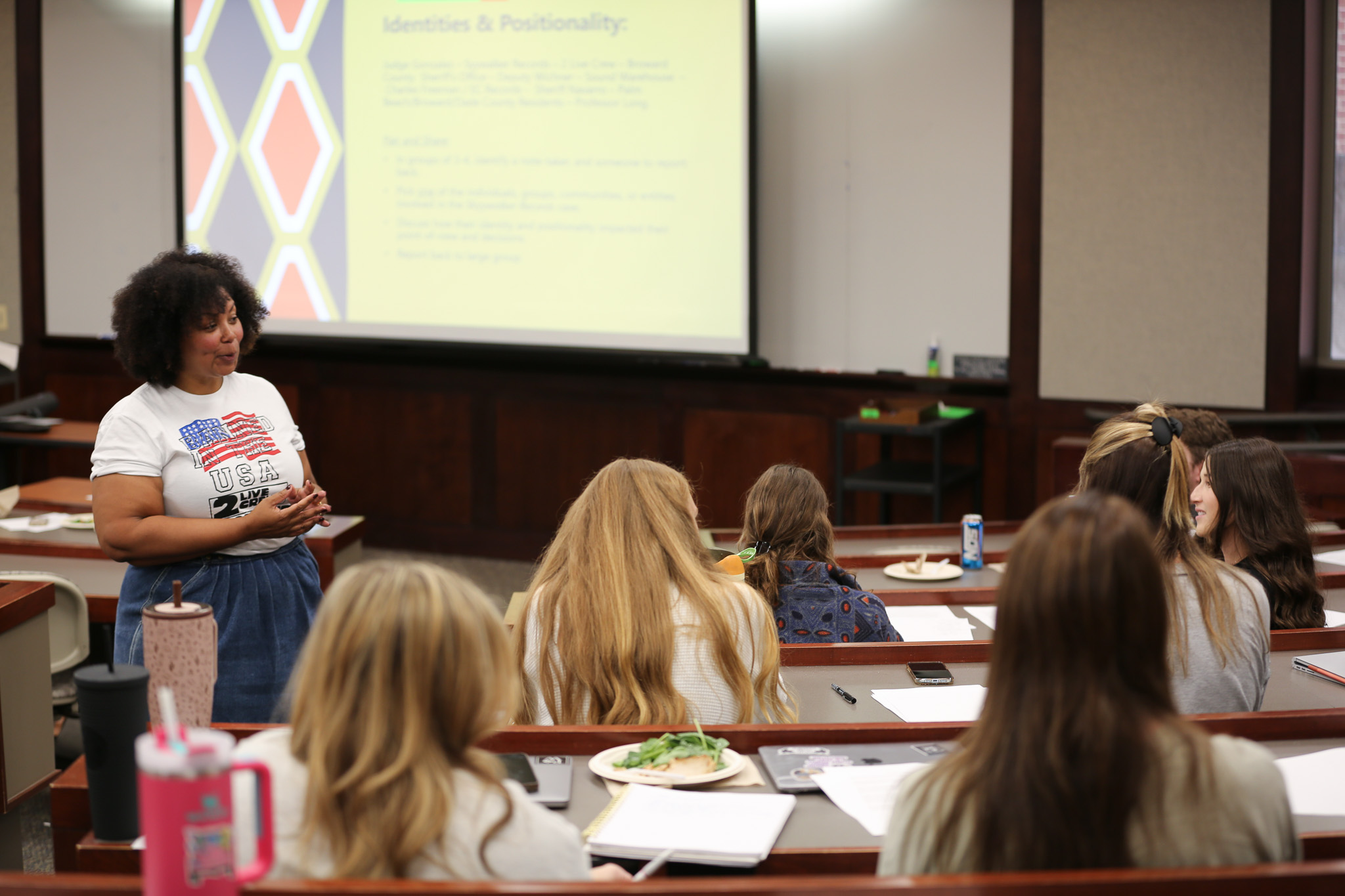
Curriculum
Winston Law’s curricular offerings reflect the law school’s value of building a more just society by promoting a learning environment that is robust, engaging, and inclusive.
Throughout the curriculum, faculty prepare their students to be responsible legal professionals by fostering dialogue that bridge cultural differences, encouraging civil discourse, and providing instruction on bias, cultural competency, and racism.
Elective Choice: Students have the choice of numerous courses–such as Appalachian Justice Research Lab, Civil Rights Actions, Disability Law, and Sex, Gender, & Justice–that are designed to expose them to a variety of perspectives and legal issues.
Learn more about Winston Law’s courses here.
Inclusive Teaching at Winston Law: This LibGuide expertly crafted by Joel A. Katz Law Library professors aides faculty who are dedicated to using best practices in inclusive teaching.
Faculty Scholarship
The faculty of Winston Law are engaged in a wide variety of research that crosses cultures and appeals to those with multiple interests. Their work spans a wide range of fields including human rights, civil rights, international law and criminal law. Some examples include:
- Sherley Cruz, Becky Jacobs, et. al., ABA Standard 303(c) and Divisive Concepts Legislation and Policies: Challenges and Opportunities, 73 Wash. U. J.L. & Pol’y 247 (2024)
- Joan MacLeod Heminway, Corporate Management Should All Be Feminists, 40 Law & Ineq. 409 (2022).
- Michael J. Higdon, LGBTQ Youth and the Promise of the Kennedy Quartet, 43 Cardozo L. Rev. 2385 (2022).
- Michelle Kwon, Tapping into the Talent Pipeline While Repairing the Leaky Pipe, 55 Toledo L. Rev. 219 (2024).
- Alex Long, What the Lawyer Well-Being Movement Could Learn from the Americans with Disabilities Act, 63 William & Mary L. Rev. Online 63 (2022).
- Deflect, Delay, Deny: A Case Study of Segregation by Law School Faculty, 90 Tenn. L. Rev. 1 (2022).
Diversity, Inclusion, and Community Engagement Leadership
Associate Dean for Diversity, Inclusion, and Community Engagement
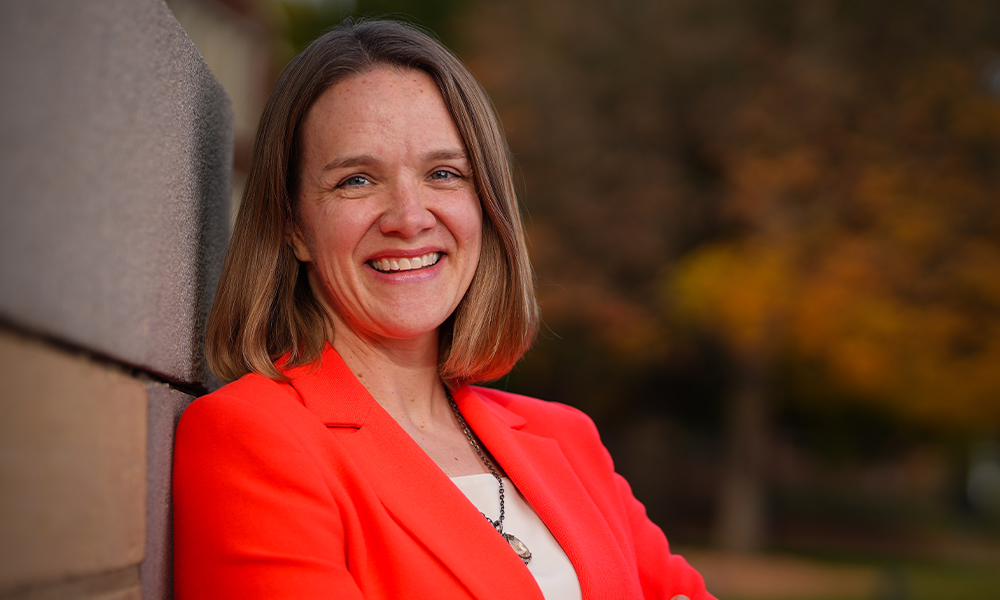
Briana Rosenbaum currently serves as the Associate Dean for Diversity, Inclusion, and Community Engagement. Dean Rosenbaum’s most recent scholarship focuses on the history of race in American legal education.
Deflect, Delay, Deny: A Case Study of Segregation by Law School Faculty
Read more about Associate Dean Rosenbaum
Community and Inclusion Committee
The Community and Inclusion Committee supports faculty, staff, and students in scholarship, teaching, and service projects related to access, belonging, community, and cultural humility at Winston Law. The Committee—made up of faculty, staff, and students—plans programming and recommends policies and strategies for increasing access to legal education, engaging with the community, and enhancing the welcoming and inclusive atmosphere of Winston Law.
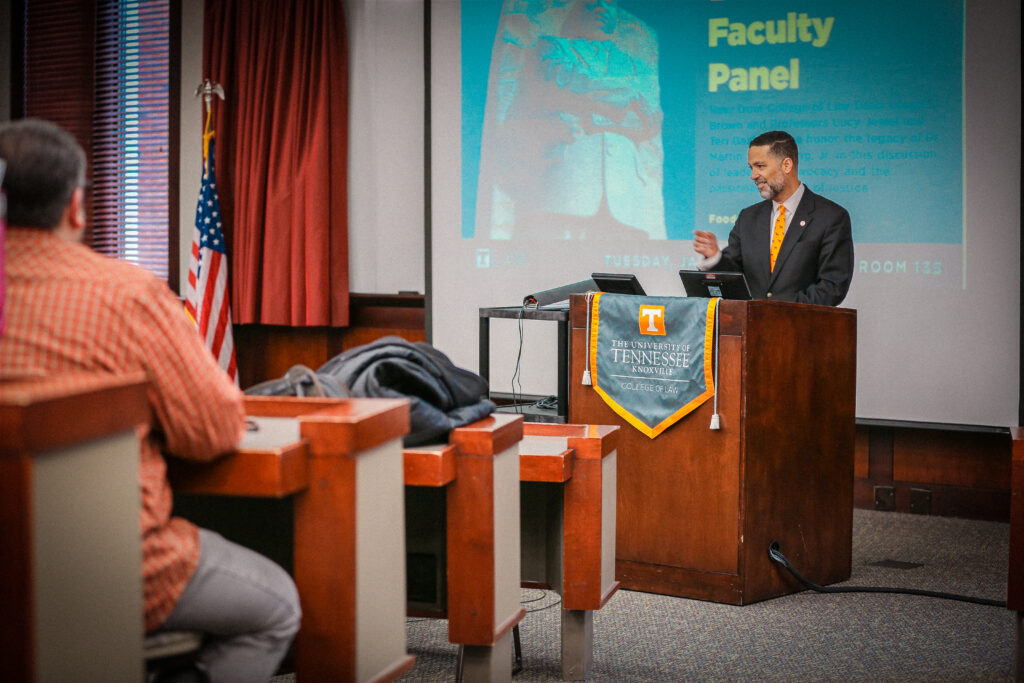
- Winston Law Bias Reporting & Education Process here
- University of Tennessee Campus Climate Reporting here
- Mental Health & Wellness Resources here
- University of Tennessee Student Disability Services here
- Resource guide for students, faculty, and staff that provides information about the greater Knoxville area, on-campus resources, small, locally-owned businesses and restaurants, community DEI resources, and more here
- University of Tennessee’s Office of Access and Engagement here
Diversity, Inclusion &
Community Engagement
at Winston Law

Winston College of Law fully embraces the goals of the Statement of Aspirations approved by the University of Tennessee Board of Trustees.
Consistent with that, we at the Winston Law are committed to promoting and cultivating diversity, which is expressed in myriad forms, including race, color, ethnicity, religion, national origin, gender, gender identity or expression, sexual orientation, age, disability, military status, socio-economic status and viewpoint.
Our immediate aim is to foster a more inclusive learning and working environment for our entire community – one that succeeds and thrives because of its diversity.
Our broader aim is to learn, teach and practice the principles of equity and justice to ensure that all people have the opportunity to grow, contribute and achieve their aspirations. We commit to pursuing deliberate efforts to ensure that our college welcomes differences and is a place where different perspectives are heard and every individual feels a sense of belonging.
To ensure equity, we also commit to challenge and respond to bias, harassment, and discrimination, and to provide equal opportunities for our students, faculty and staff.

Community Engagement
Faculty, staff, and students at Winston Law are actively involved in community engagement efforts. As the law school for the state’s flagship institution, we are deeply committed to the land grant mission and to its call to support and collaborate with our community.
Pro Bono Programs
Students engage in pro bono work, providing free legal assistance to underserved communities.
TN Supreme Court recognizes students for pro bono service
Legal Clinic
Winston Law’s Legal Clinic works extensively with our neighboring communities to offer a variety of legal services.
Students in the Expungement Mini-Clinic provide critical legal assistance to underserved citizens in having criminal offenses expunged, thereby facilitating their ability to exercise important rights.
Students in the Transactional Law Legal Clinic interact with local, state and federal agencies on behalf of underrepresented clients to draft contracts and governance documents; conduct regulatory research and provide compliance advice; and give legal presentations to the community.
UT Legal Clinic Honored for Extraordinary Community Service
Research and Advocacy to Support Community Priorities
The law school’s faculty, staff, and students work with individuals across campus and with partners in the region to support communities throughout Tennessee and beyond.
Student Organizations and Engagement
Winston Law offers a wide range of opportunities through its programming and student organizations, enabling students to engage with the community, connect with practicing lawyers and potential employers, and build lasting relationships with peers with a variety of perspectives. These opportunities are reflected in numerous initiatives, a few of which are highlighted below.
Meet a few of our active student organizations
The Federalist Society is a non-partisan group of conservatives and libertarians interested in the current state of the law and legal system. The society’s principles are that “the state exists to preserve freedom, that the separation of governmental powers is central to our Constitution, and that it is emphatically the province and duty of the judiciary to say what the law is, not what it should be.” The society seeks to promote an awareness of these principles and to further their application through its activities. The group regularly hosts speaker events, bringing politicians and thought leaders in the legal profession to share their knowledge with the law community.

A chapter of the National Black Law Students Association, BLSA offers a dynamic range of programs and events throughout the academic year including panels on mentorship, networking sessions, and professional development workshops, and engaging speaker events. The group also co-hosts the annual Julian Blackshear, Jr. Scholarship Gala, benefitting the Julian Blackshear, Jr. Scholarship. BLSA features competitive Mock Trial and Moot Court teams for 2L and 3L students, with a special 1L Fellow observation program.

Vols for Veterans was founded by students committed to aiding veterans in the Knoxville community. The organization introduces law students to career opportunities in military service through JAG careers, assists veterans through pro bono work, and annually awards the General Clifton Cates Leadership Scholarship to two law student veterans or dependents of veterans. In 2024, past and current Vols for Vets members gathered in front of College of Law as 1L Dylan O’Brien was promoted to the rank of Captain in the U.S. Marine Corps in a ceremony conducted by Lt. Col. Chris Davis (’19), a founder of Vols for Vets.

Law Women strives to raise awareness of issues related to women’s participation in the judicial system, promote career opportunities, act as a forum for networking with attorneys and other legal professionals, and coordinate activities within the university community. Among the groups’ many community building initiatives, is its annual chili cookoff, a tasty scholarship fundraiser.

The Federalist Society is a non-partisan group of conservatives and libertarians interested in the current state of the law and legal system. The society’s principles are that “the state exists to preserve freedom, that the separation of governmental powers is central to our Constitution, and that it is emphatically the province and duty of the judiciary to say what the law is, not what it should be.” The society seeks to promote an awareness of these principles and to further their application through its activities. The group regularly hosts speaker events, bringing politicians and thought leaders in the legal profession to share their knowledge with the law community.

A chapter of the National Black Law Students Association, BLSA offers a dynamic range of programs and events throughout the academic year including panels on mentorship, networking sessions, and professional development workshops, and engaging speaker events. The group also co-hosts the annual Julian Blackshear, Jr. Scholarship Gala, benefitting the Julian Blackshear, Jr. Scholarship. BLSA features competitive Mock Trial and Moot Court teams for 2L and 3L students, with a special 1L Fellow observation program.

Learn more about all of the active Winston Law Student Organizations
The annual Julian Blackshear Jr. Scholarship Gala celebrates students and alumni who have positively impacted the University of Tennessee College of Law through their commitment to diversity and inclusion.
The event is organized annually by the Dean’s Office in partnership with the Black Law Students Association (BLSA).
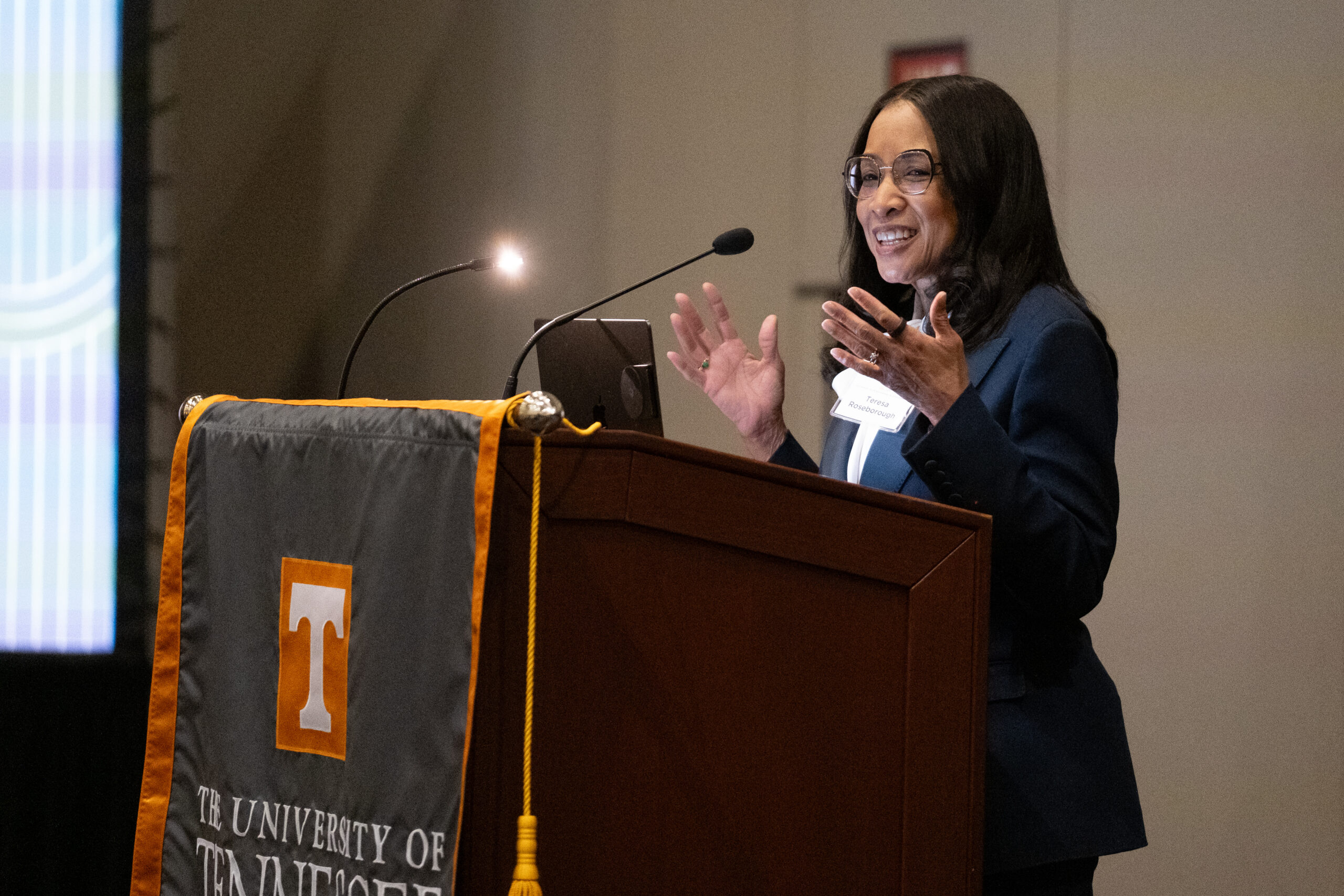
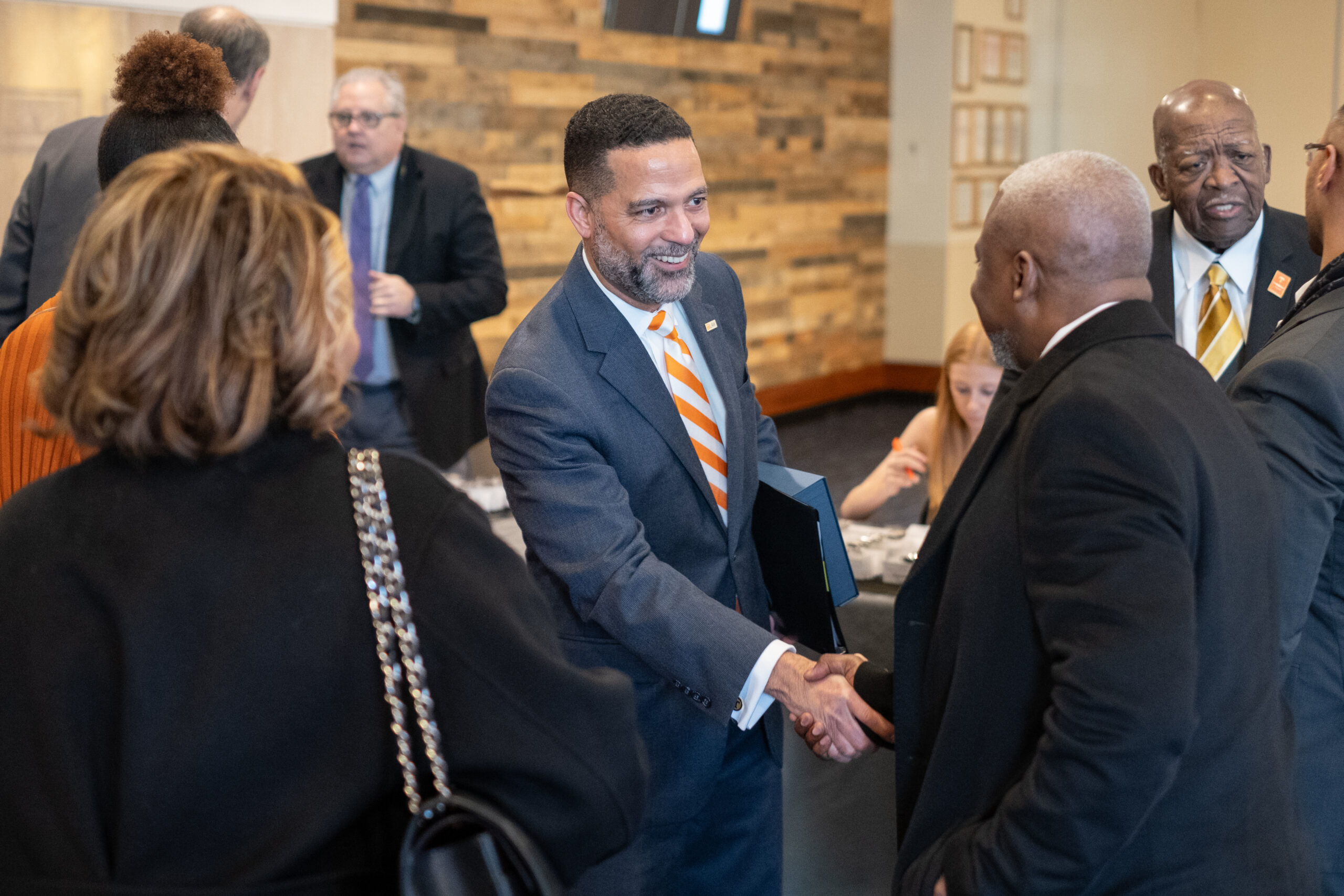
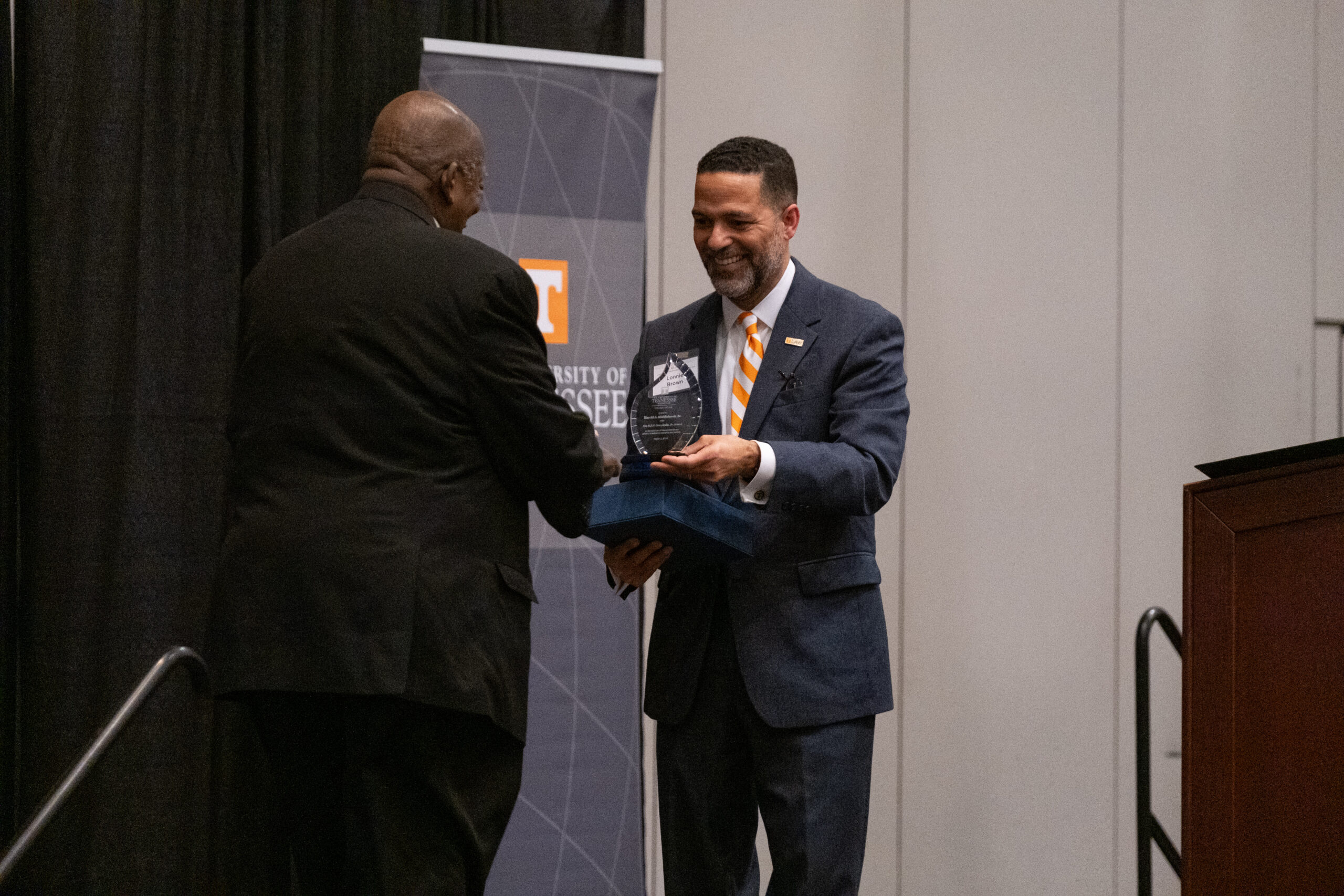
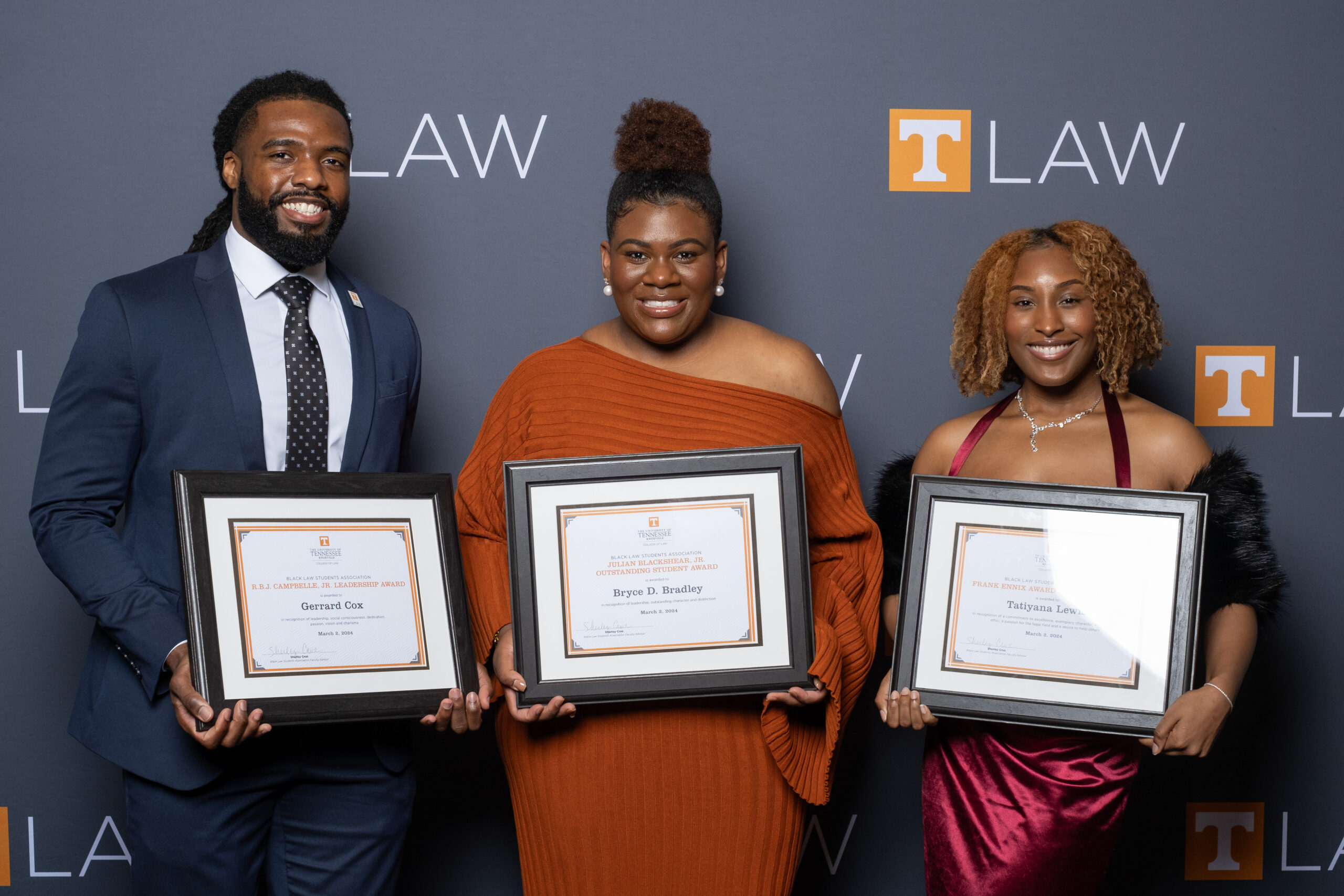
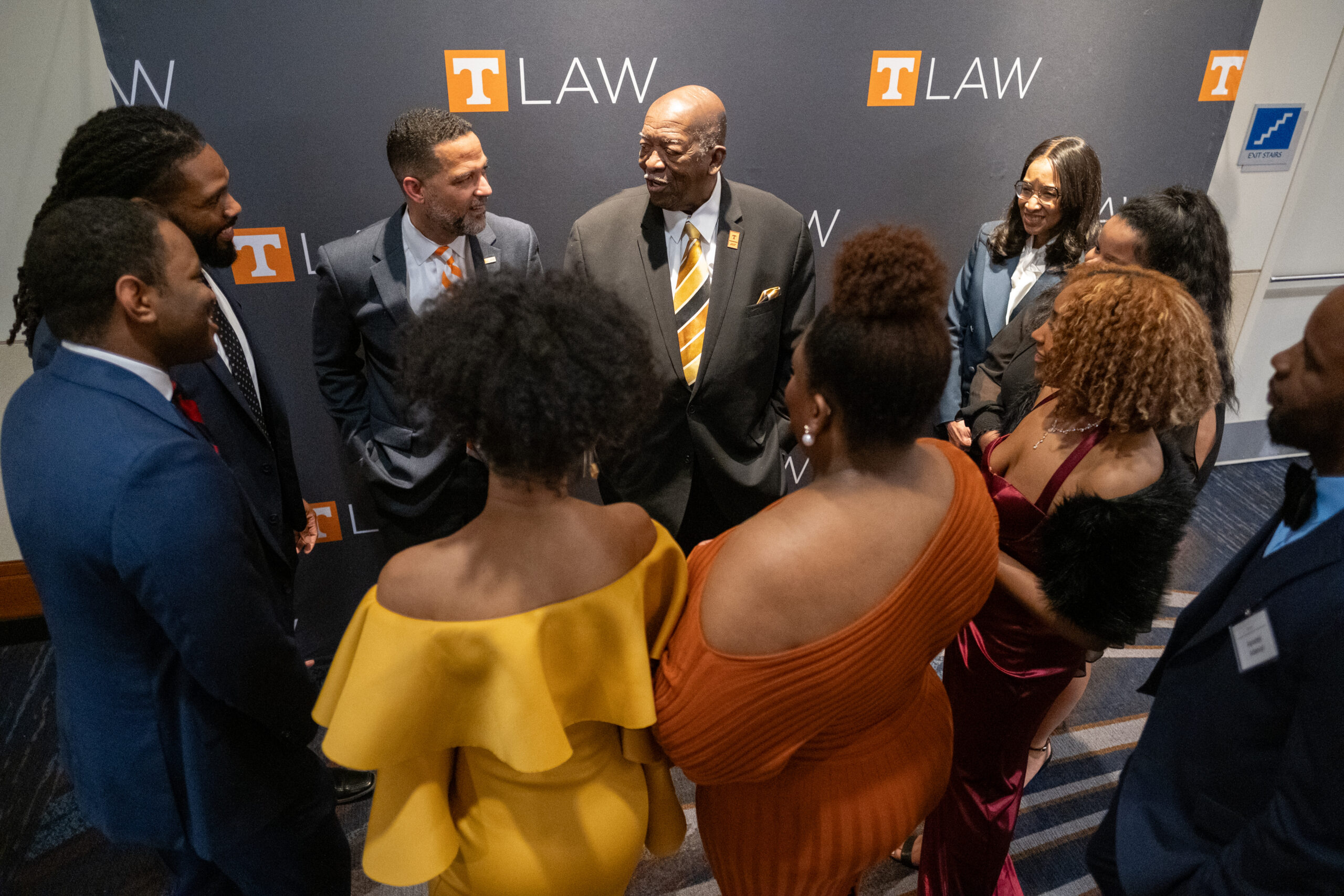
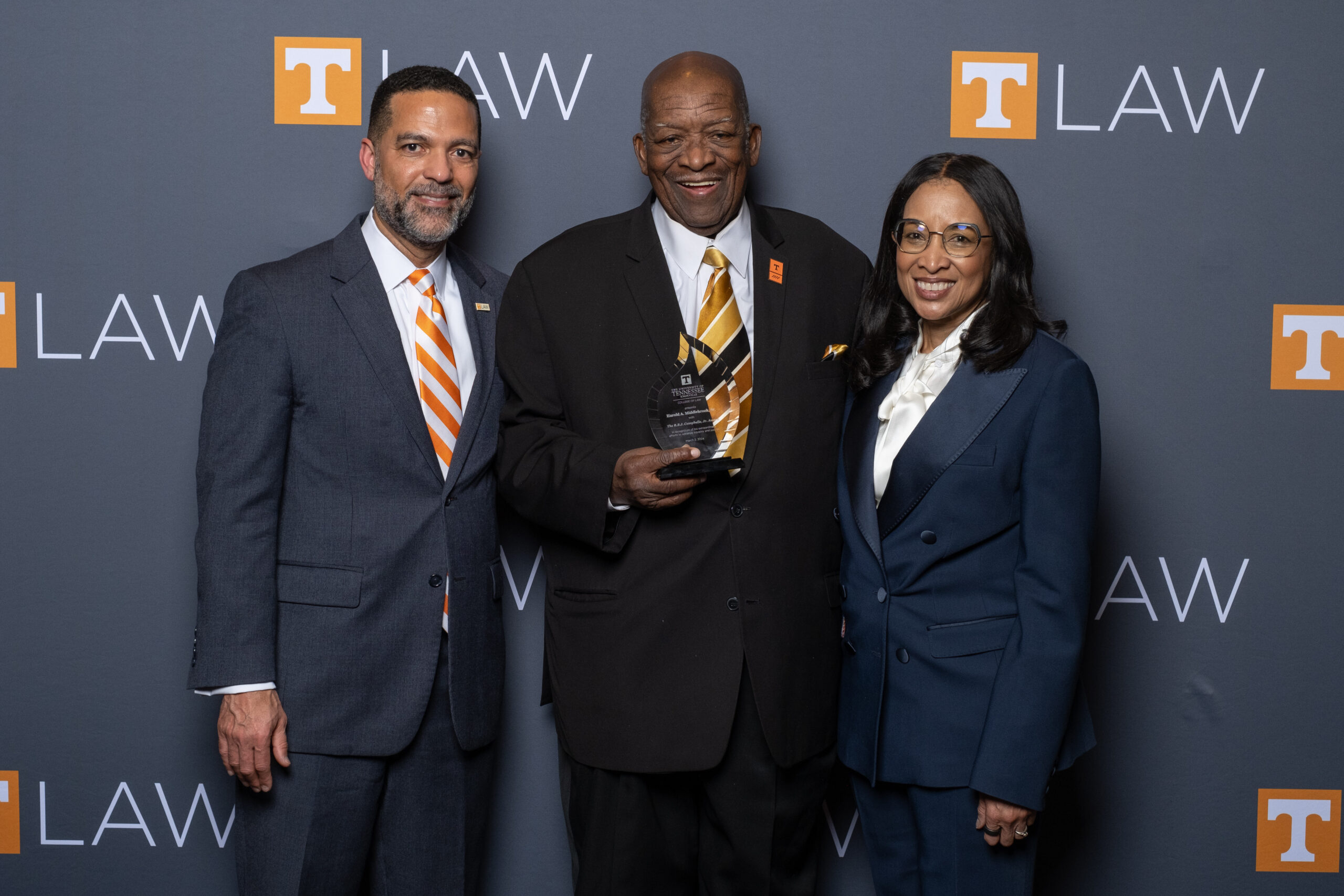
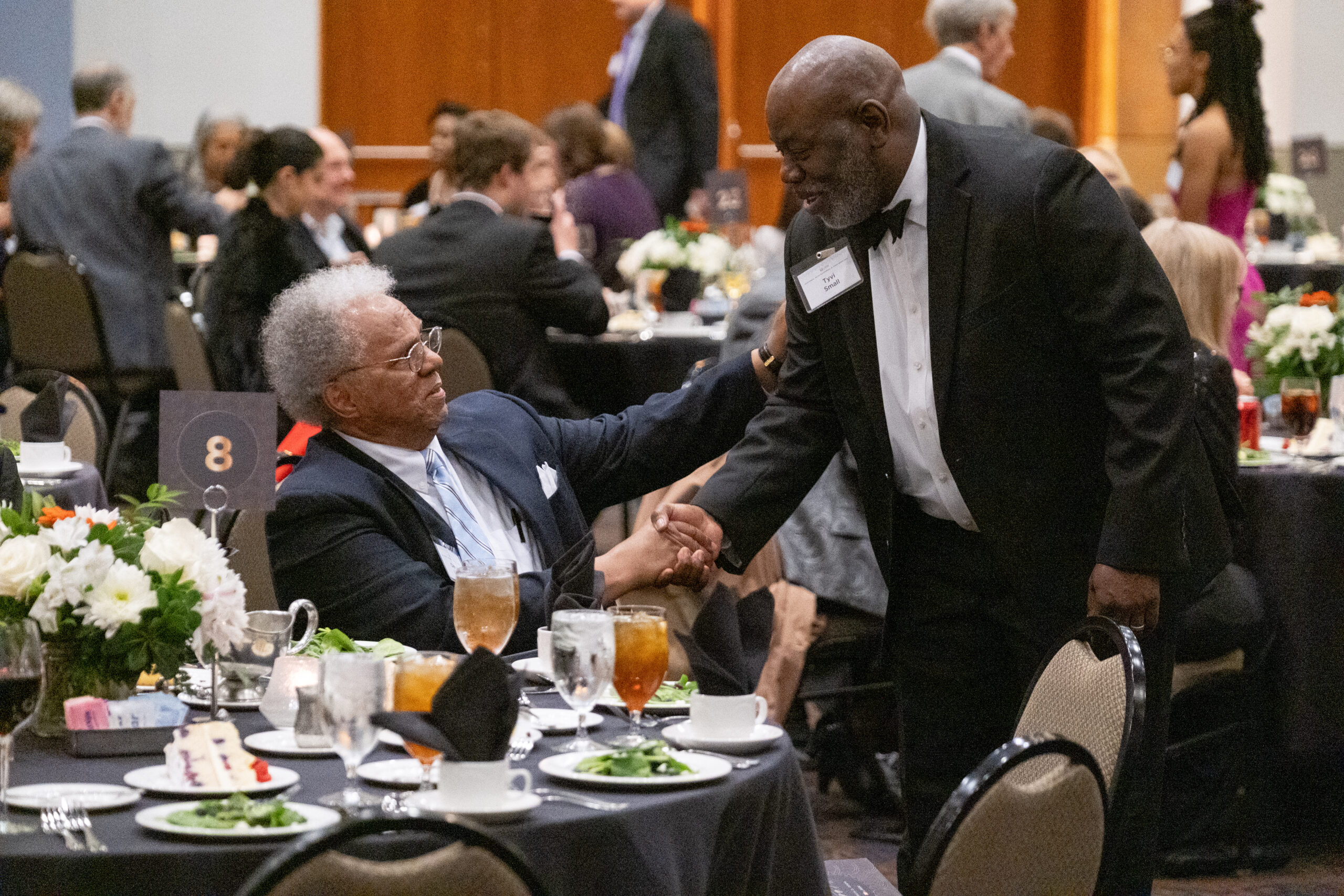
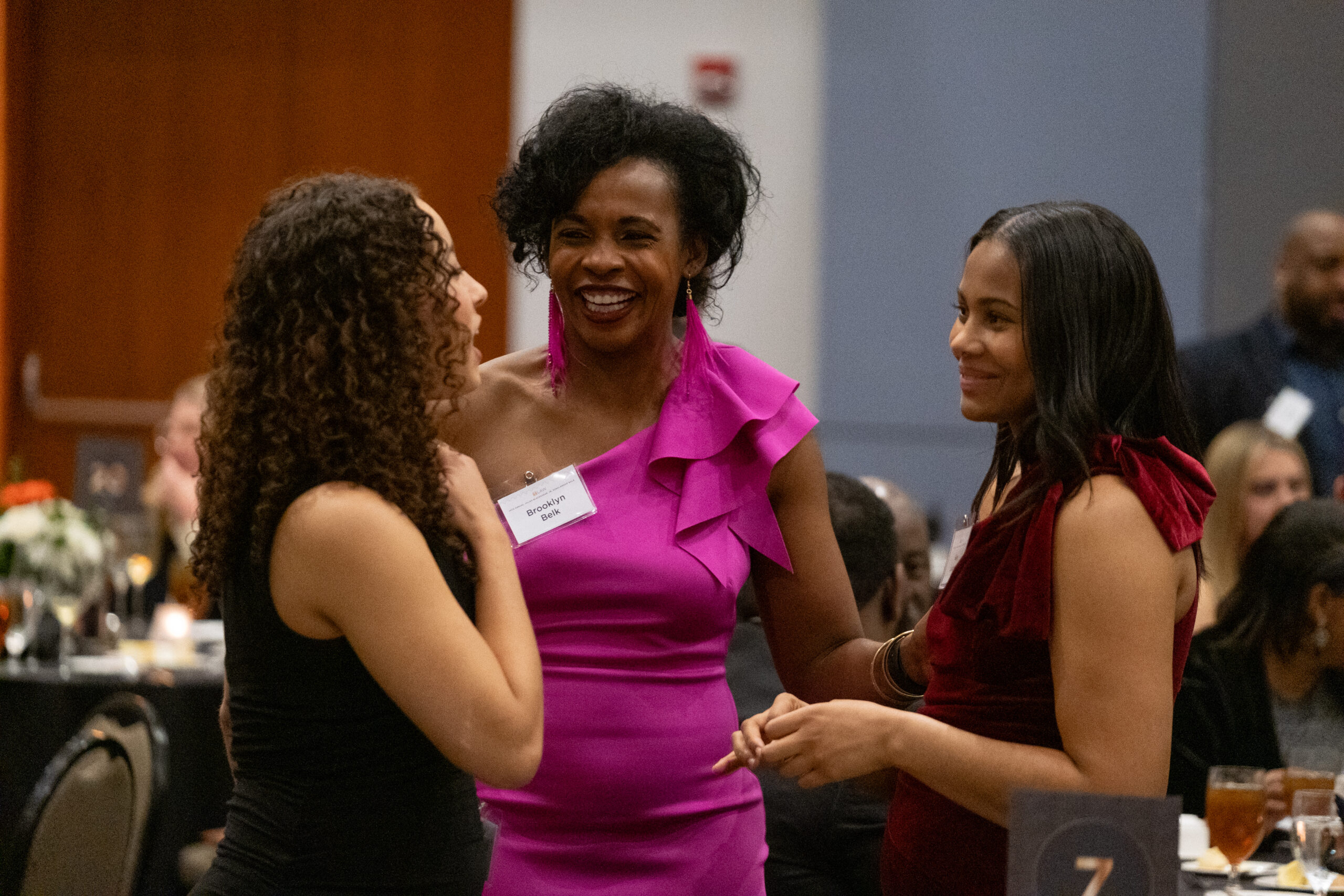






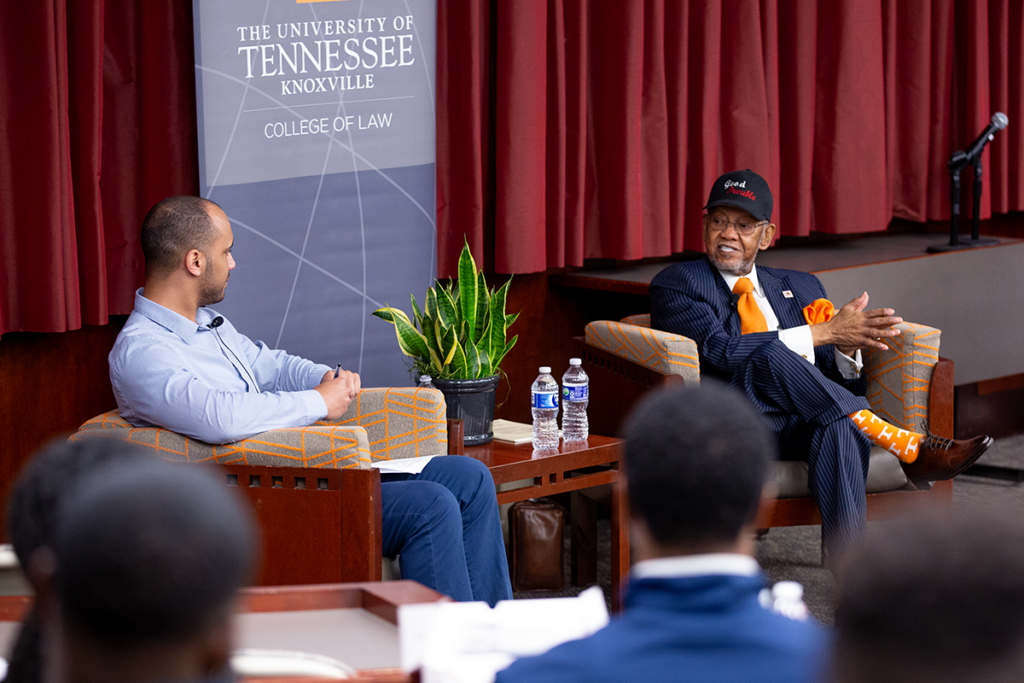
Hosted by the Black Law Students Association, Dr. Theotis Robinson visited Winston Law to share his trailblazing history as one of the first African American students admitted to UT.

Curriculum
Winston Law’s curricular offerings reflect the law school’s value of building a more just society by promoting a learning environment that is robust, engaging, and inclusive.
Throughout the curriculum, faculty prepare their students to be responsible legal professionals by fostering dialogue that bridge cultural differences, encouraging civil discourse, and providing instruction on bias, cultural competency, and racism.
Elective Choice: Students have the choice of numerous courses–such as Appalachian Justice Research Lab, Civil Rights Actions, Disability Law, and Sex, Gender, & Justice–that are designed to expose them to a variety of perspectives and legal issues.
Learn more about Winston Law’s courses here.
Inclusive Teaching at Winston Law: This LibGuide expertly crafted by Joel A. Katz Law Library professors aides faculty who are dedicated to using best practices in inclusive teaching.
Faculty Scholarship
The faculty of Winston Law are engaged in a wide variety of research that crosses cultures and appeals to those with multiple interests. Their work spans a wide range of fields including human rights, civil rights, international law and criminal law. Some examples include:
- Sherley Cruz, Becky Jacobs, et. al., ABA Standard 303(c) and Divisive Concepts Legislation and Policies: Challenges and Opportunities, 73 Wash. U. J.L. & Pol’y 247 (2024)
- Joan MacLeod Heminway, Corporate Management Should All Be Feminists, 40 Law & Ineq. 409 (2022).
- Michael J. Higdon, LGBTQ Youth and the Promise of the Kennedy Quartet, 43 Cardozo L. Rev. 2385 (2022).
- Michelle Kwon, Tapping into the Talent Pipeline While Repairing the Leaky Pipe, 55 Toledo L. Rev. 219 (2024).
- Alex Long, What the Lawyer Well-Being Movement Could Learn from the Americans with Disabilities Act, 63 William & Mary L. Rev. Online 63 (2022).
- Deflect, Delay, Deny: A Case Study of Segregation by Law School Faculty, 90 Tenn. L. Rev. 1 (2022).
Diversity, Inclusion, and Community Engagement Leadership
Associate Dean for Diversity, Inclusion, and Community Engagement

Briana Rosenbaum currently serves as the Associate Dean for Diversity, Inclusion, and Community Engagement. Dean Rosenbaum’s most recent scholarship focuses on the history of race in American legal education.
Deflect, Delay, Deny: A Case Study of Segregation by Law School Faculty
Read more about Associate Dean Rosenbaum
Community and Inclusion Committee
The Community and Inclusion Committee supports faculty, staff, and students in scholarship, teaching, and service projects related to access, belonging, community, and cultural humility at Winston Law. The Committee—made up of faculty, staff, and students—plans programming and recommends policies and strategies for increasing access to legal education, engaging with the community, and enhancing the welcoming and inclusive atmosphere of Winston Law.

- Winston Law Bias Reporting & Education Process here.
- University of Tennessee Campus Climate Reporting here.
- Mental Health & Wellness Resources here.
- University of Tennessee Student Disability Services here.
- Resource guide for students, faculty, and staff that provides information about the greater Knoxville area, on-campus resources, small, locally-owned businesses and restaurants, community DEI resources, and more here.
- University of Tennessee’s Office of Access and Engagement here.
